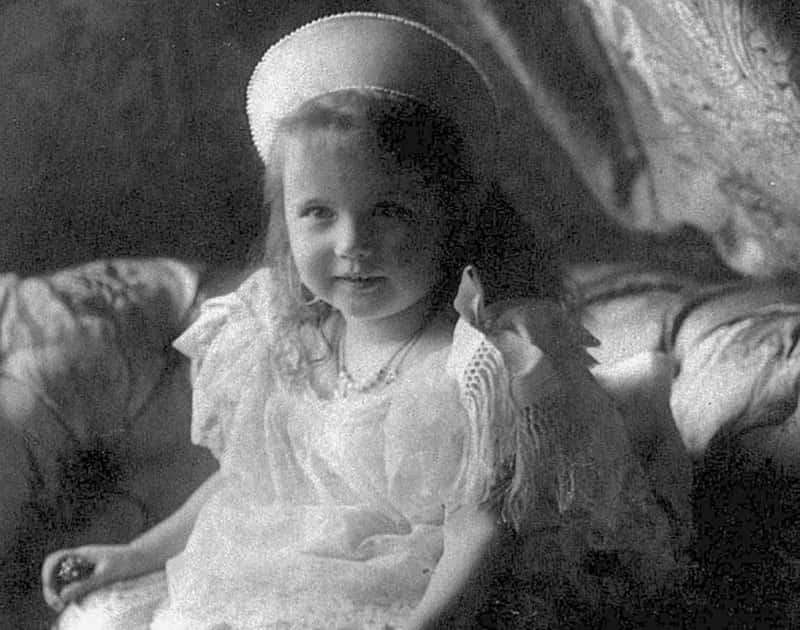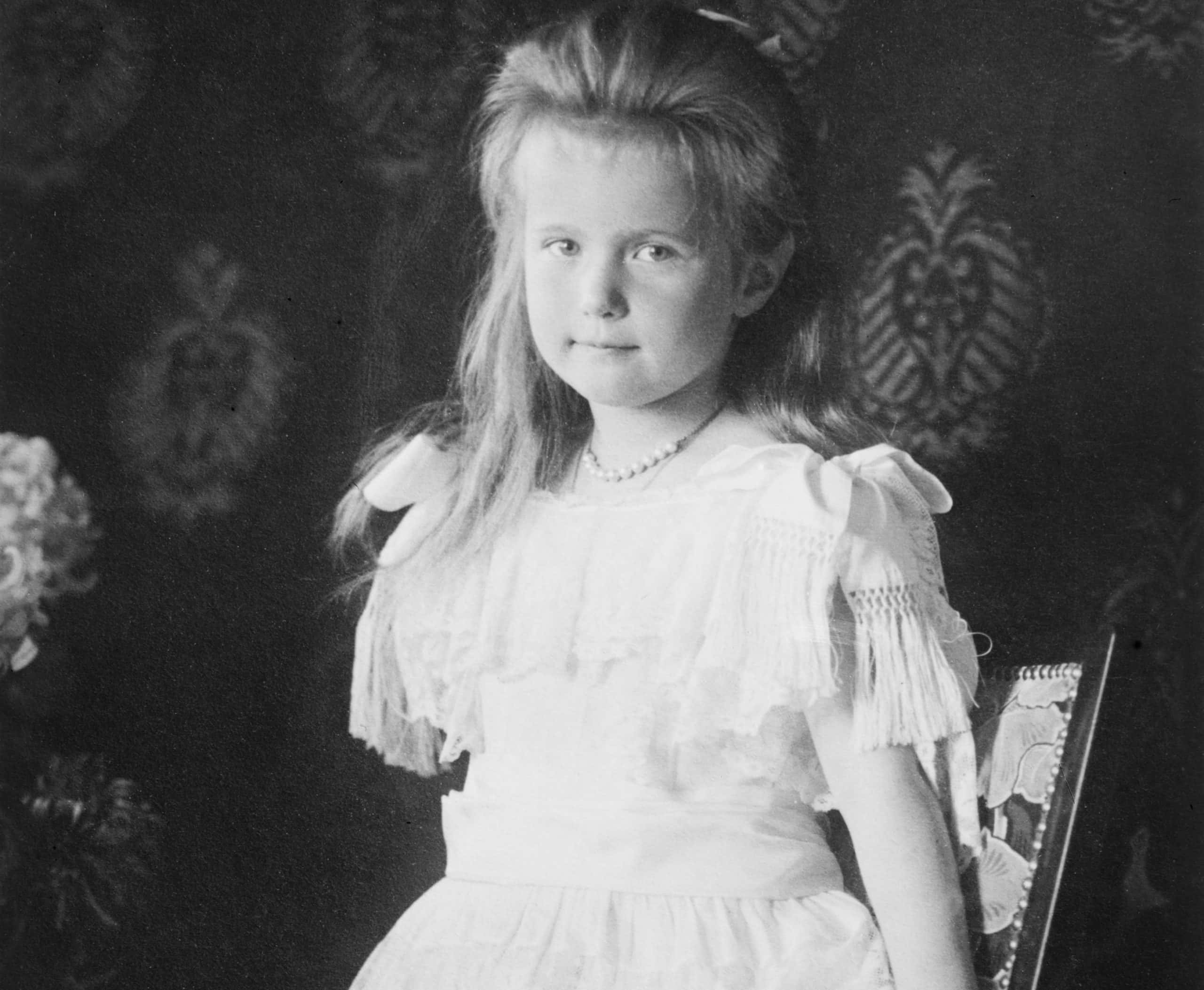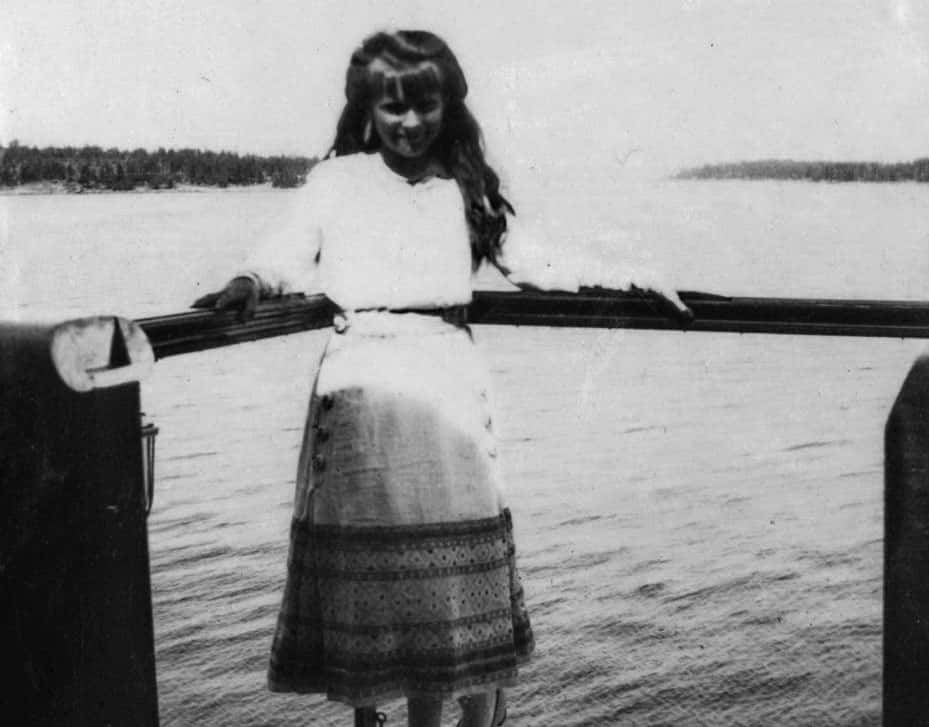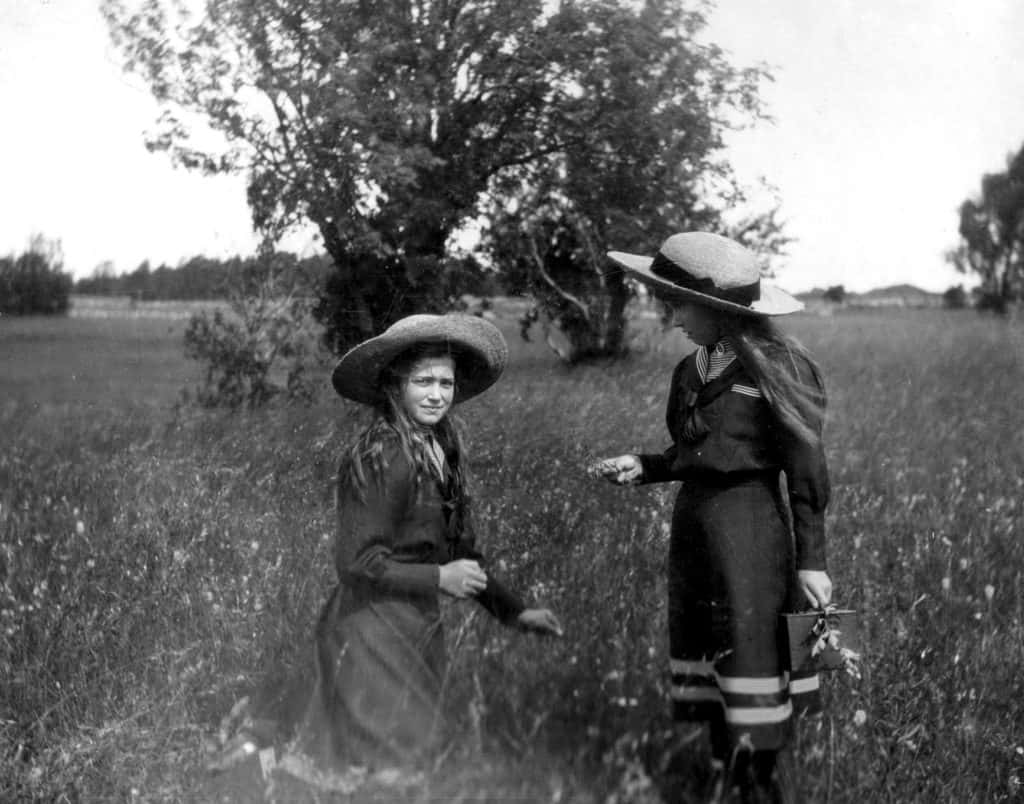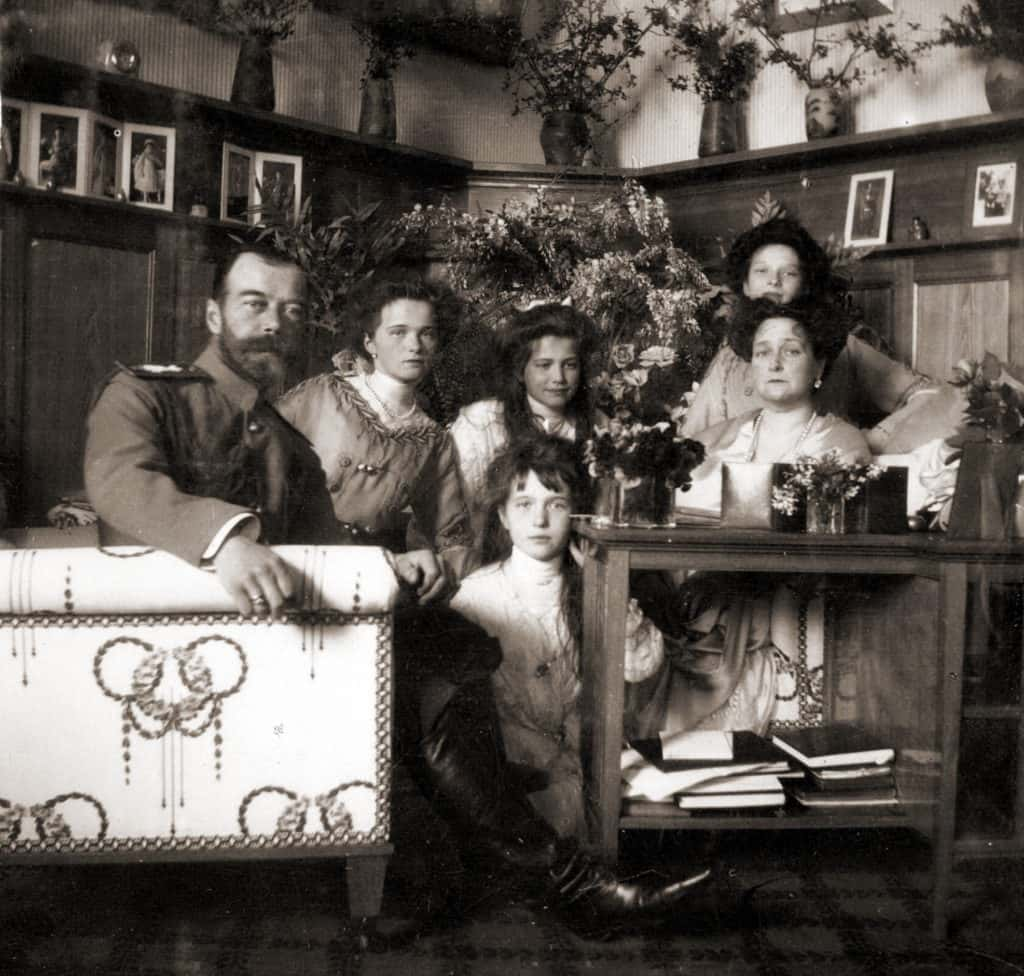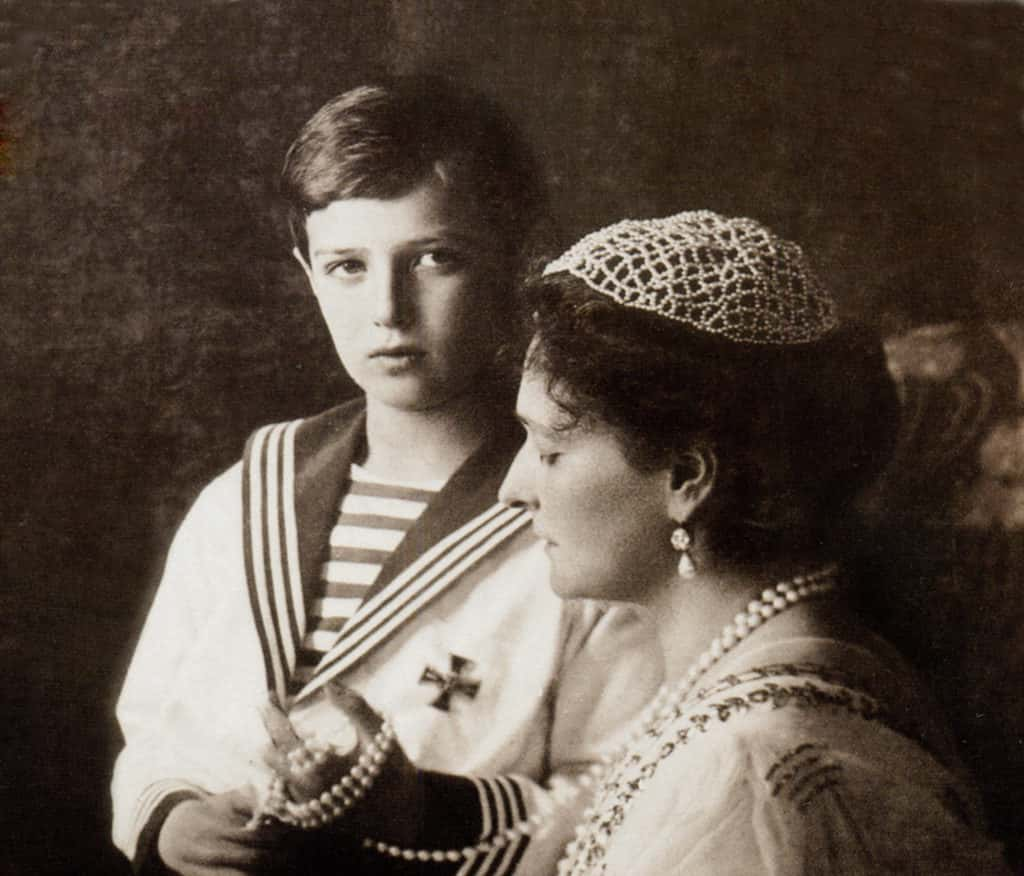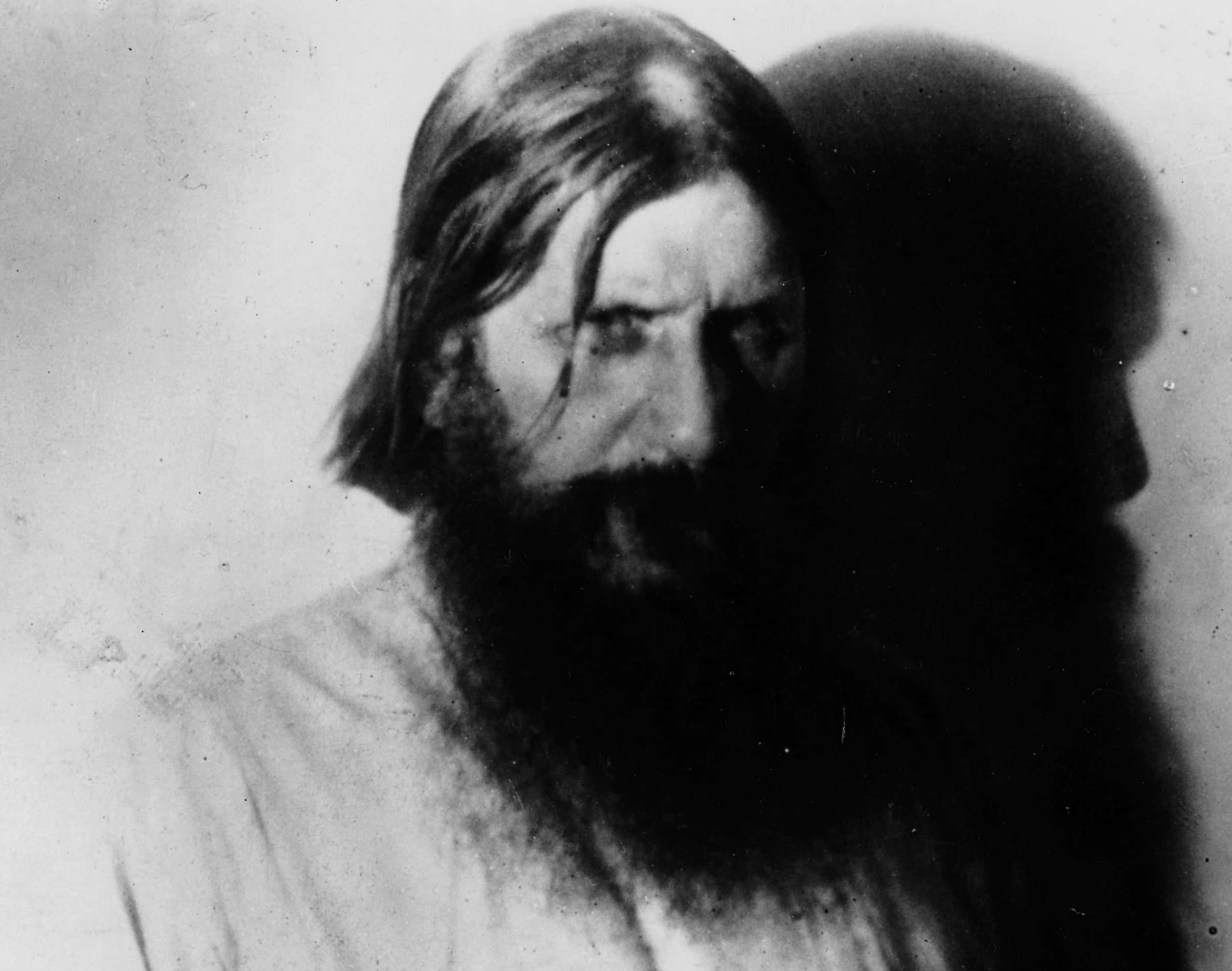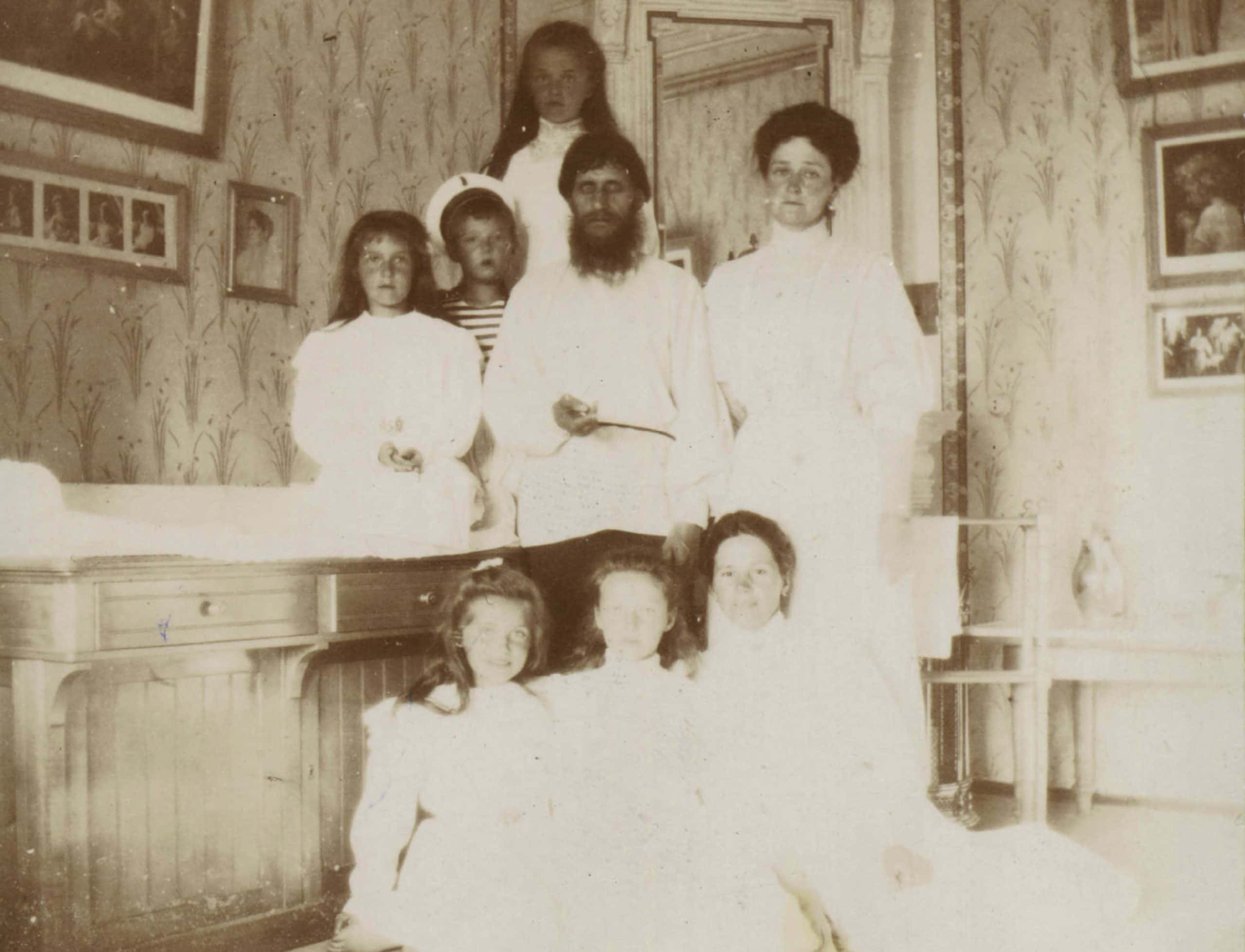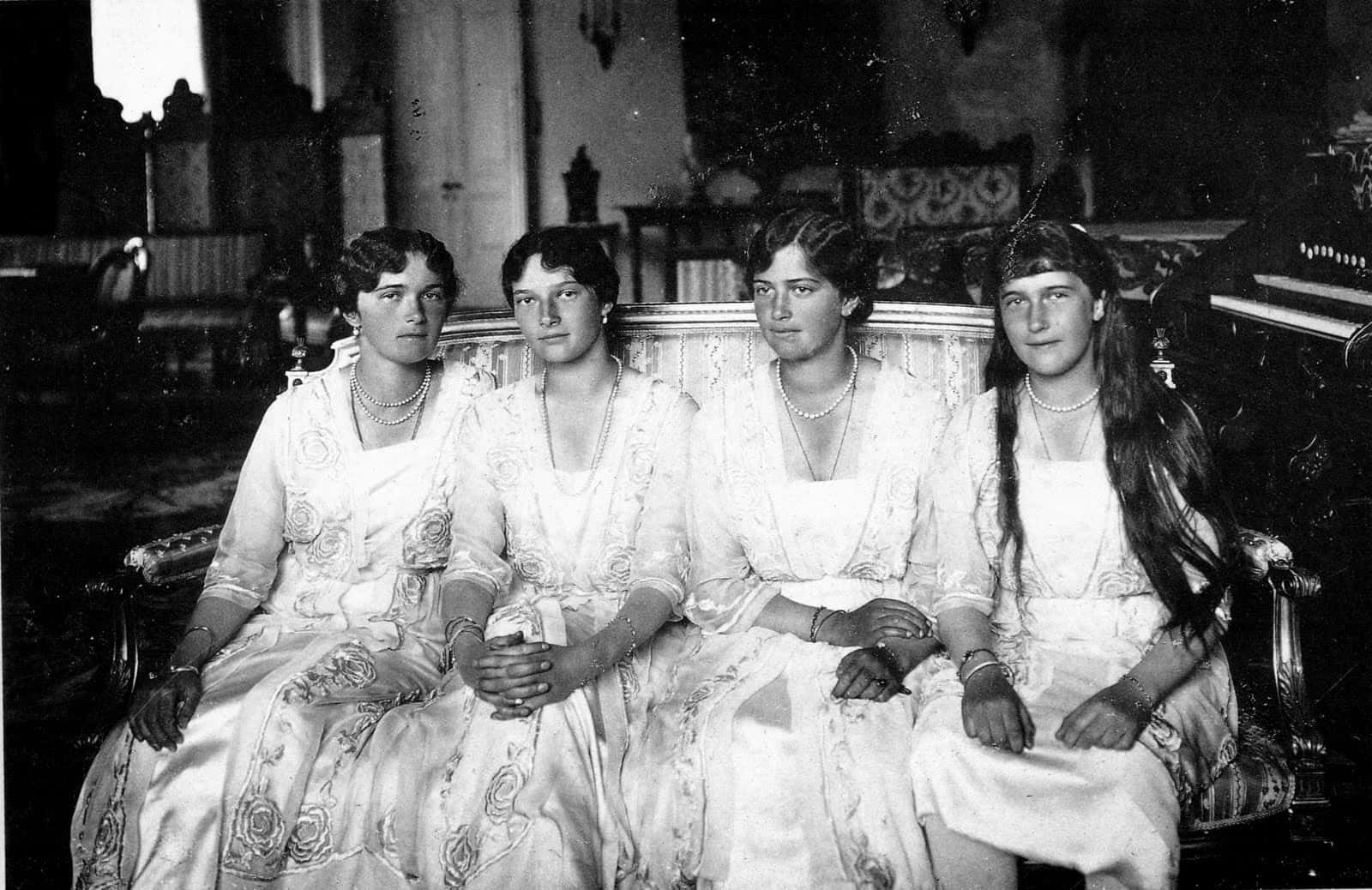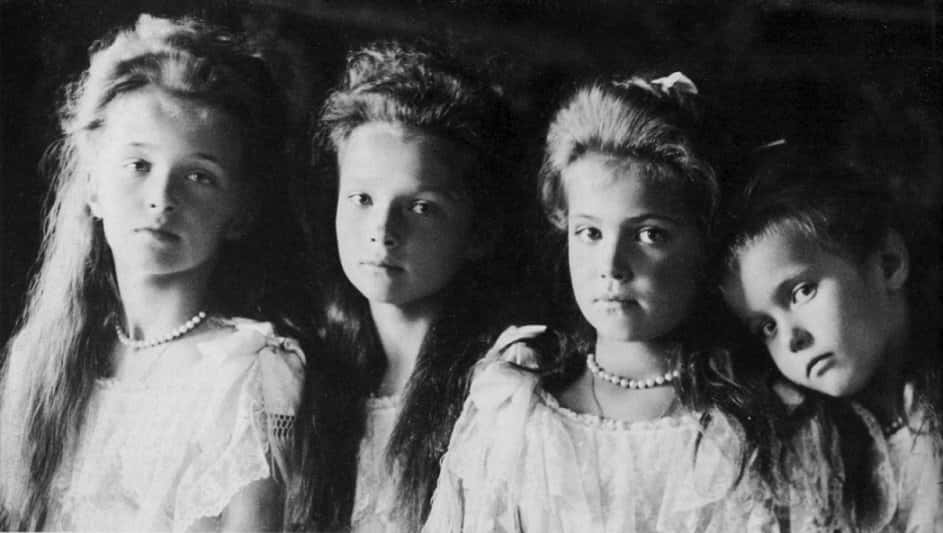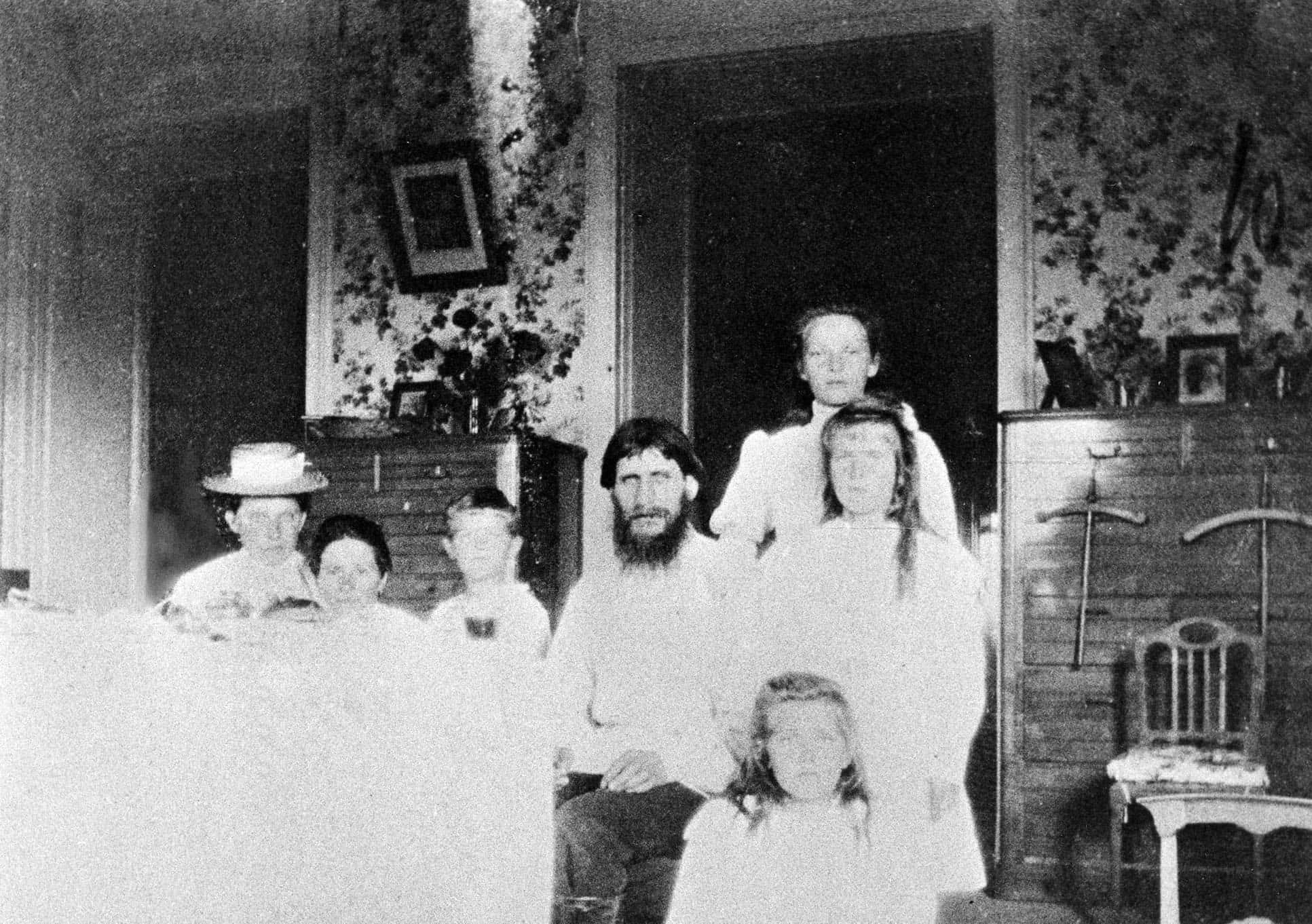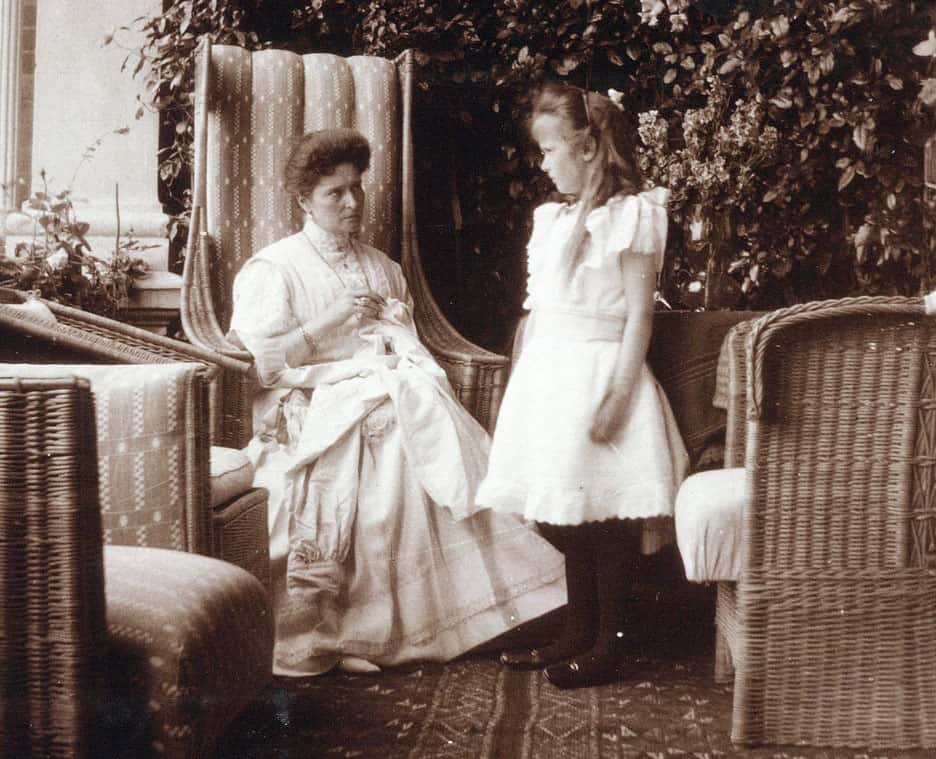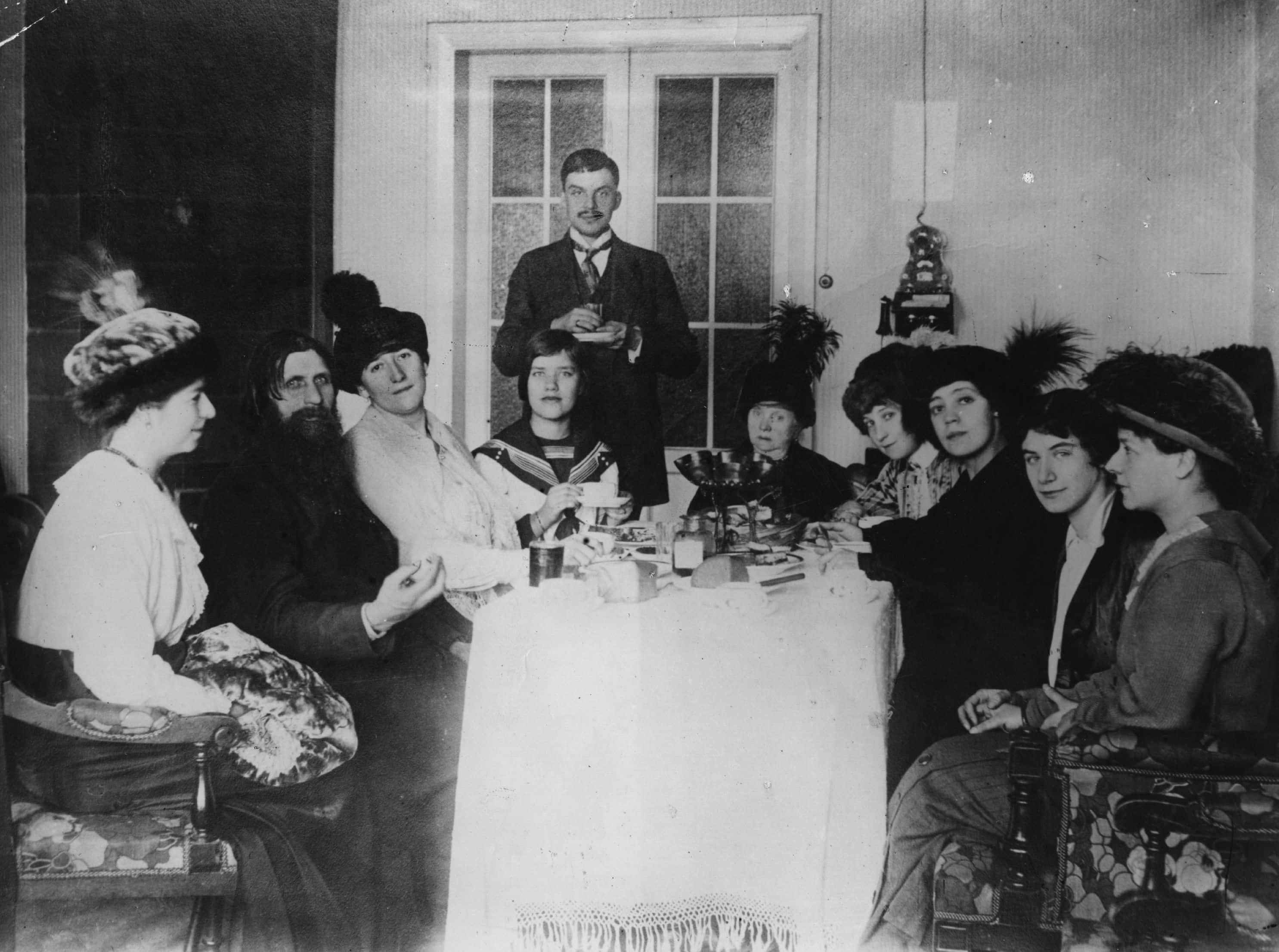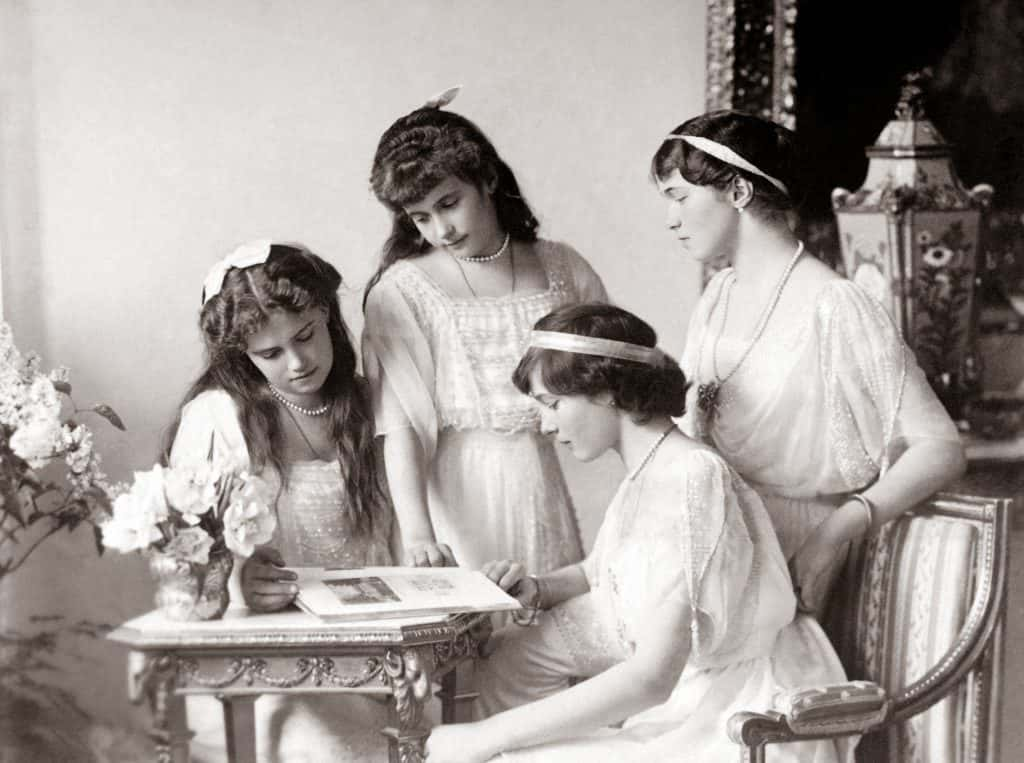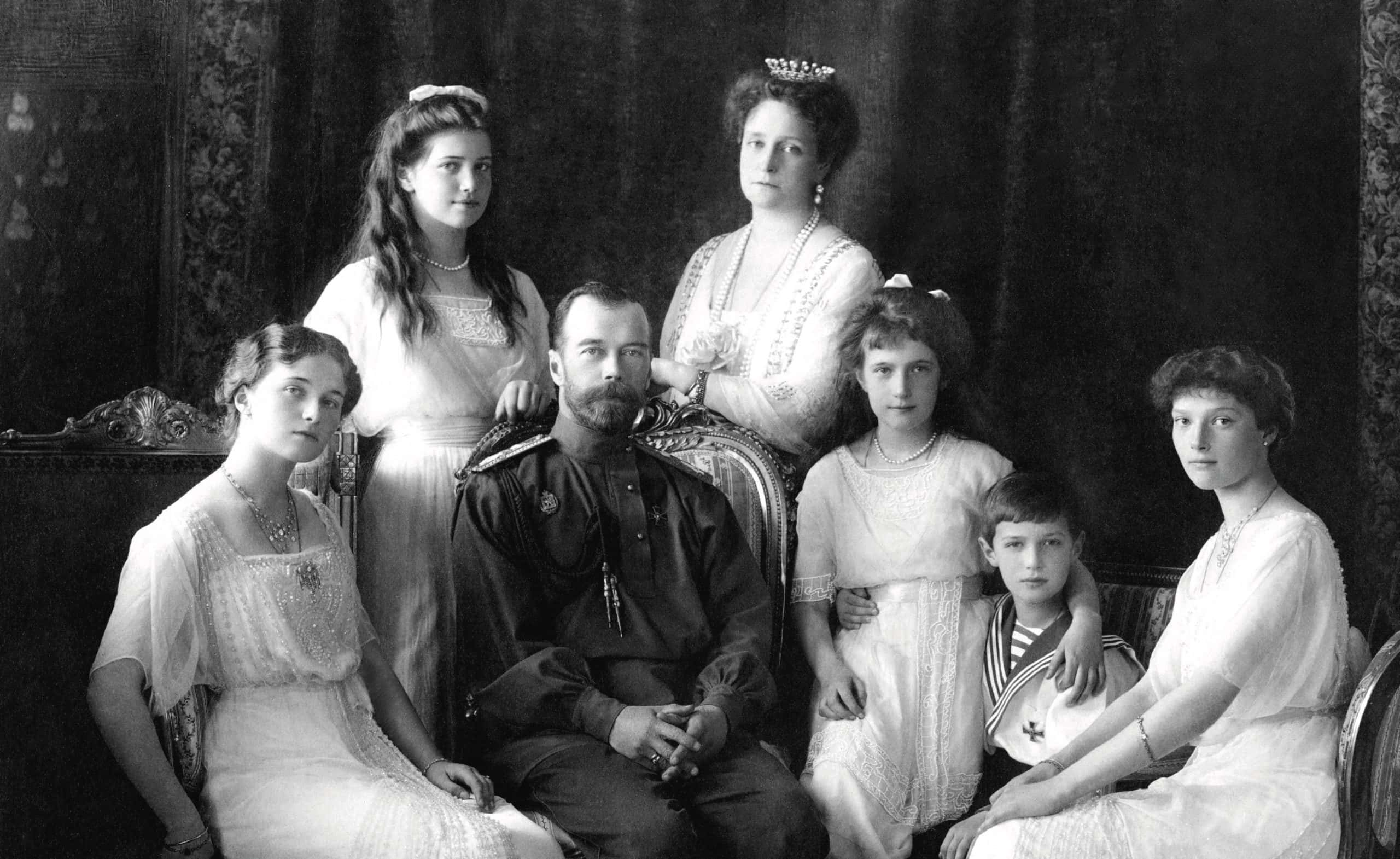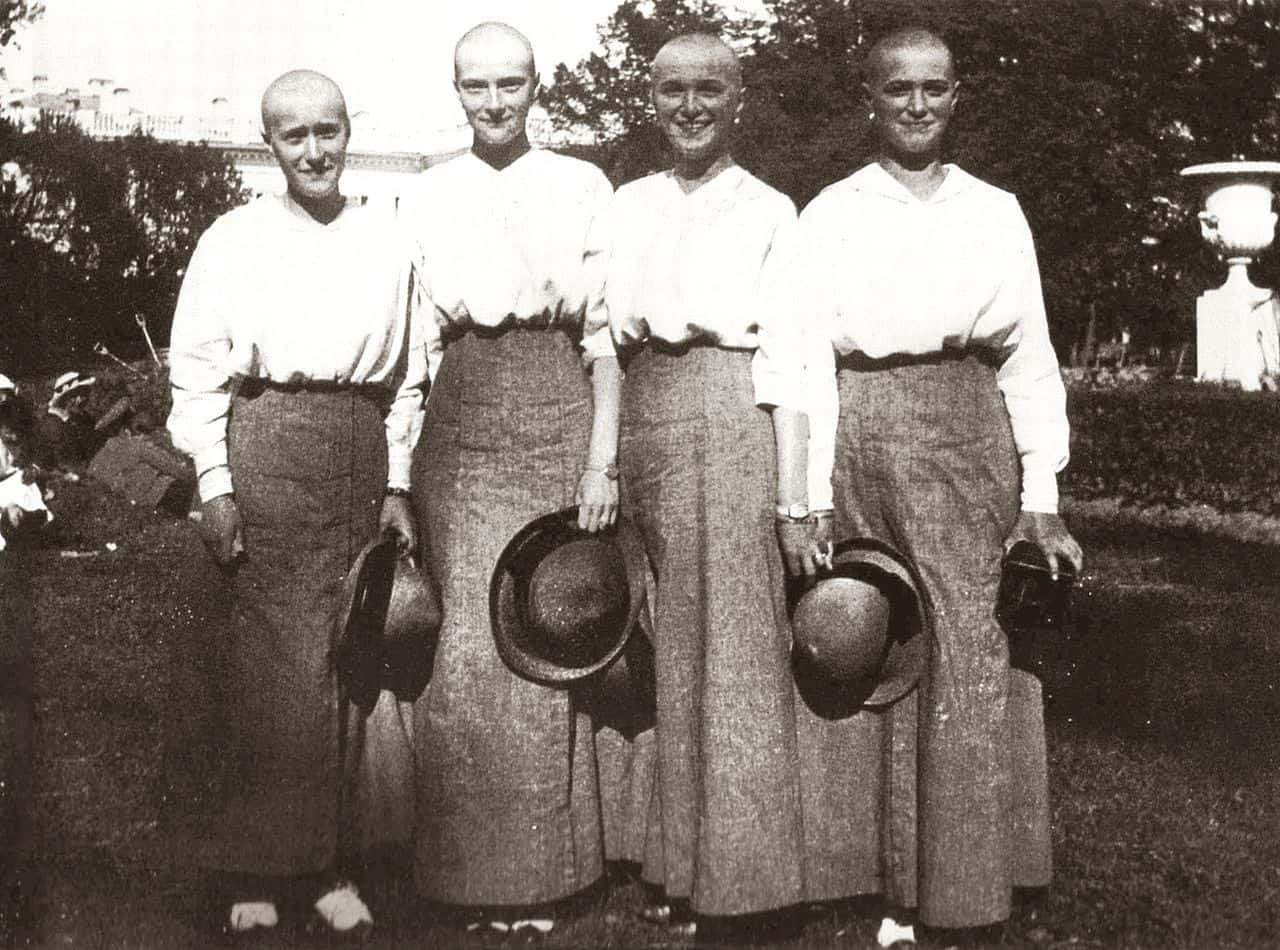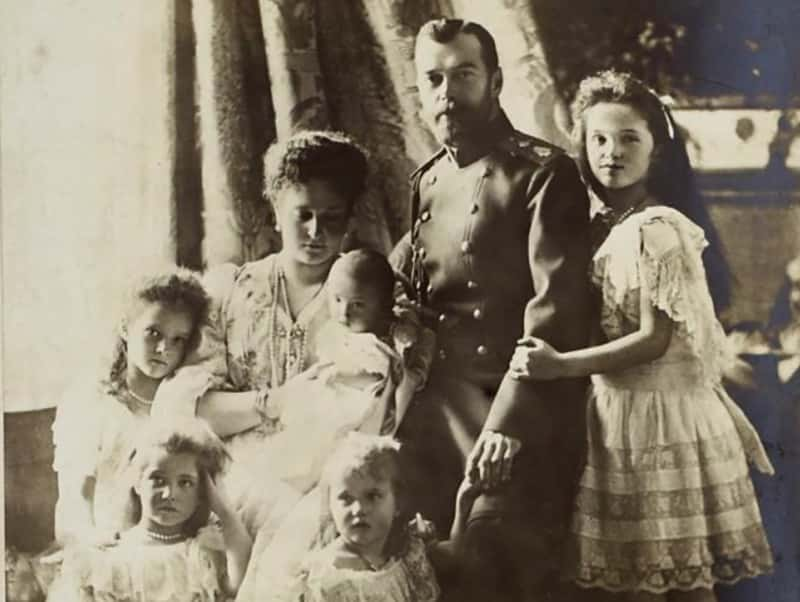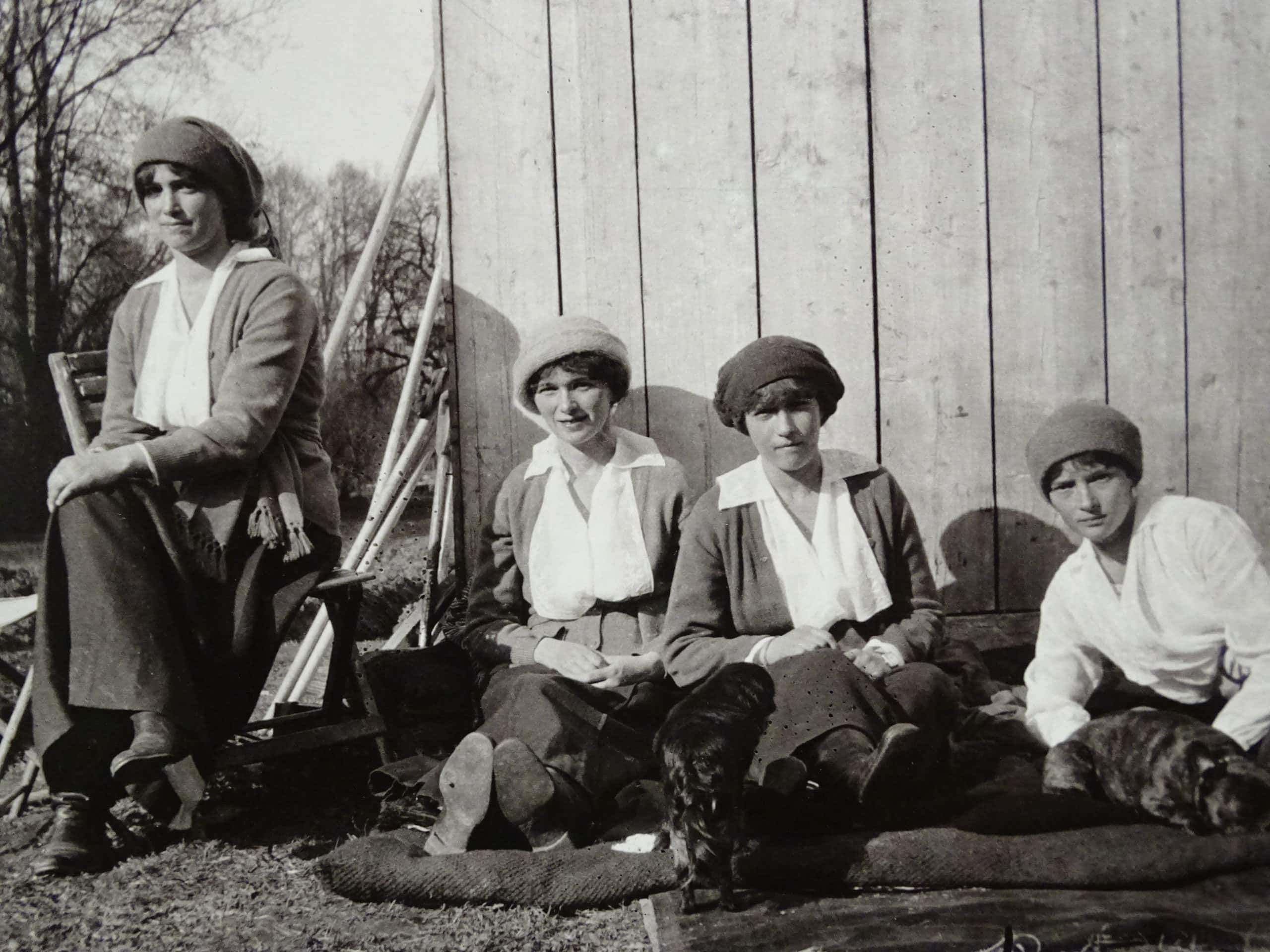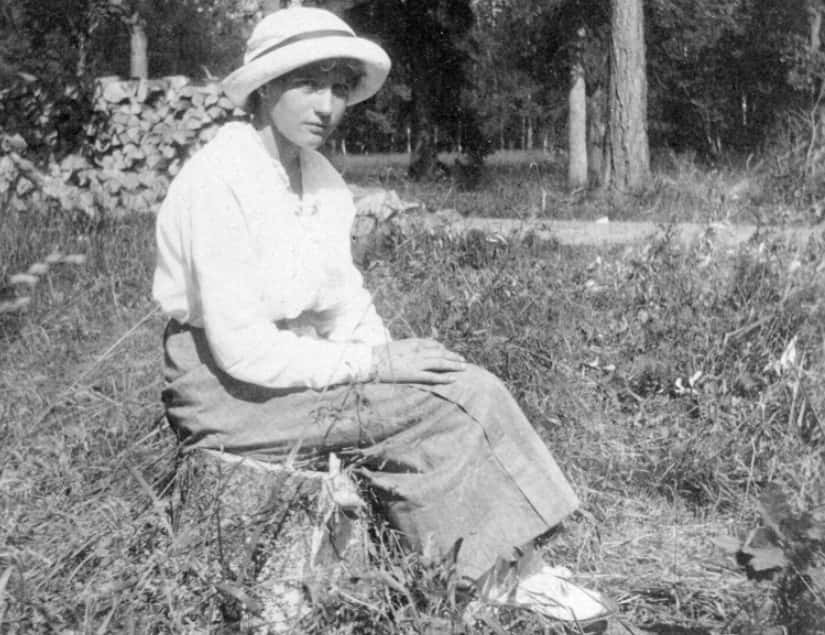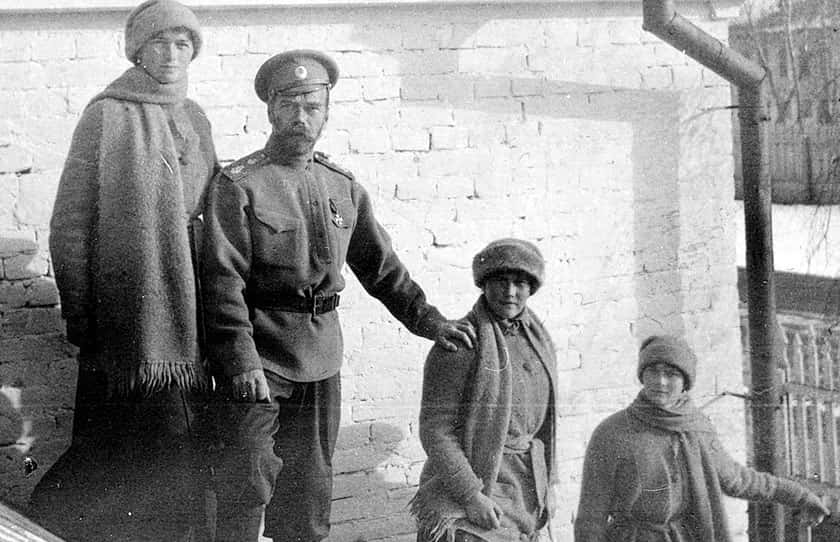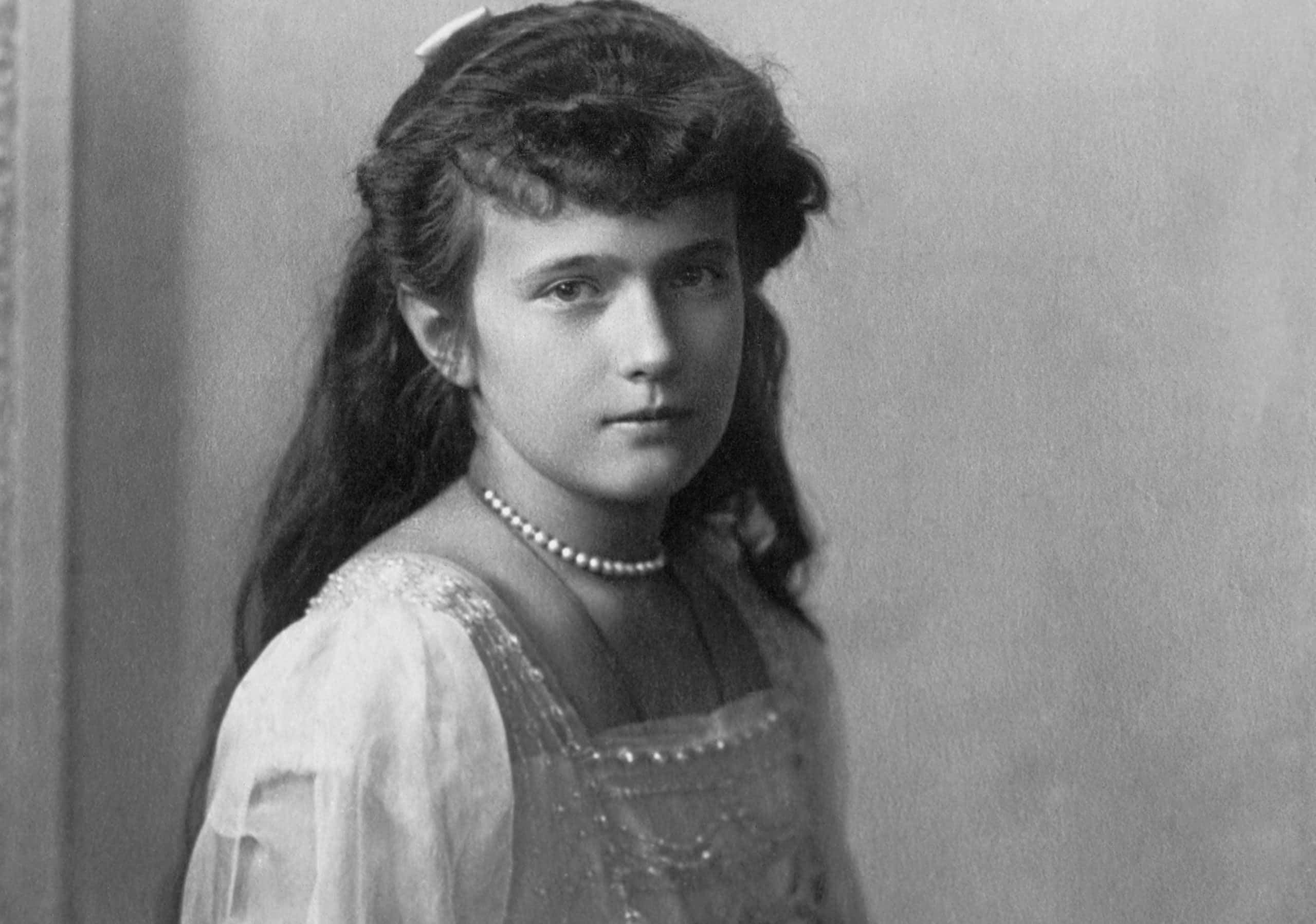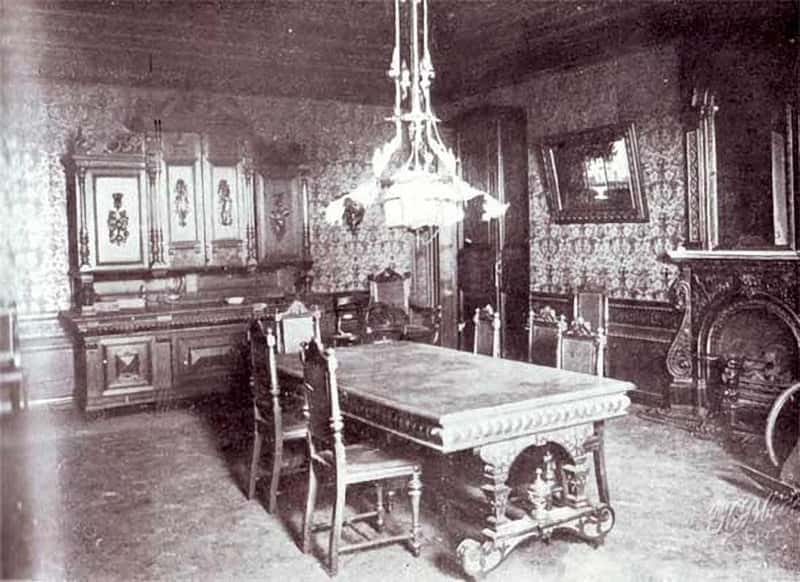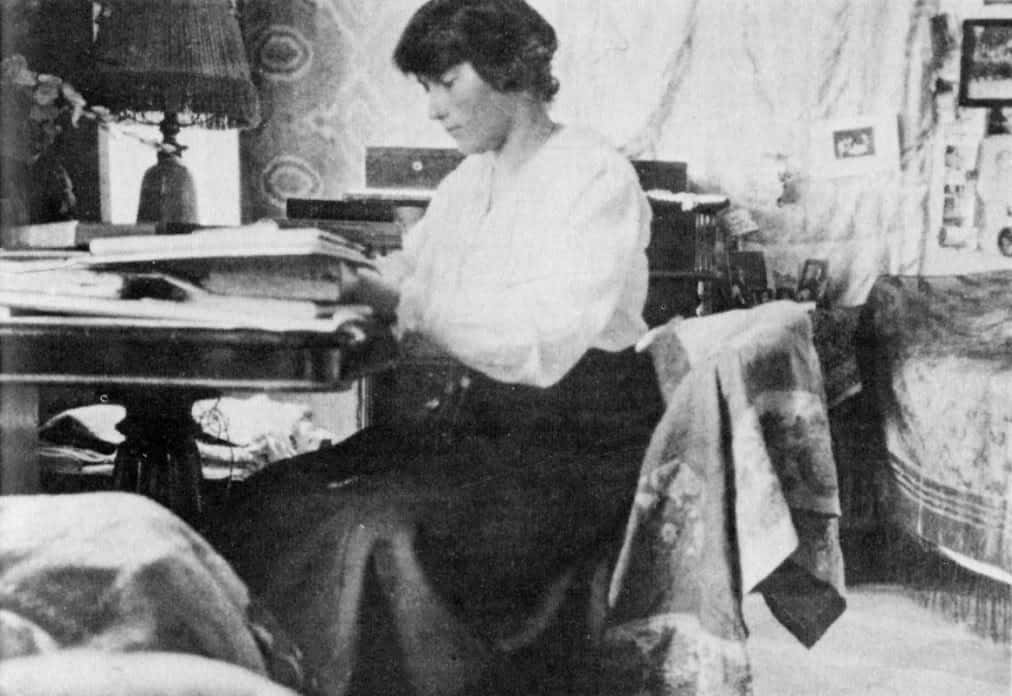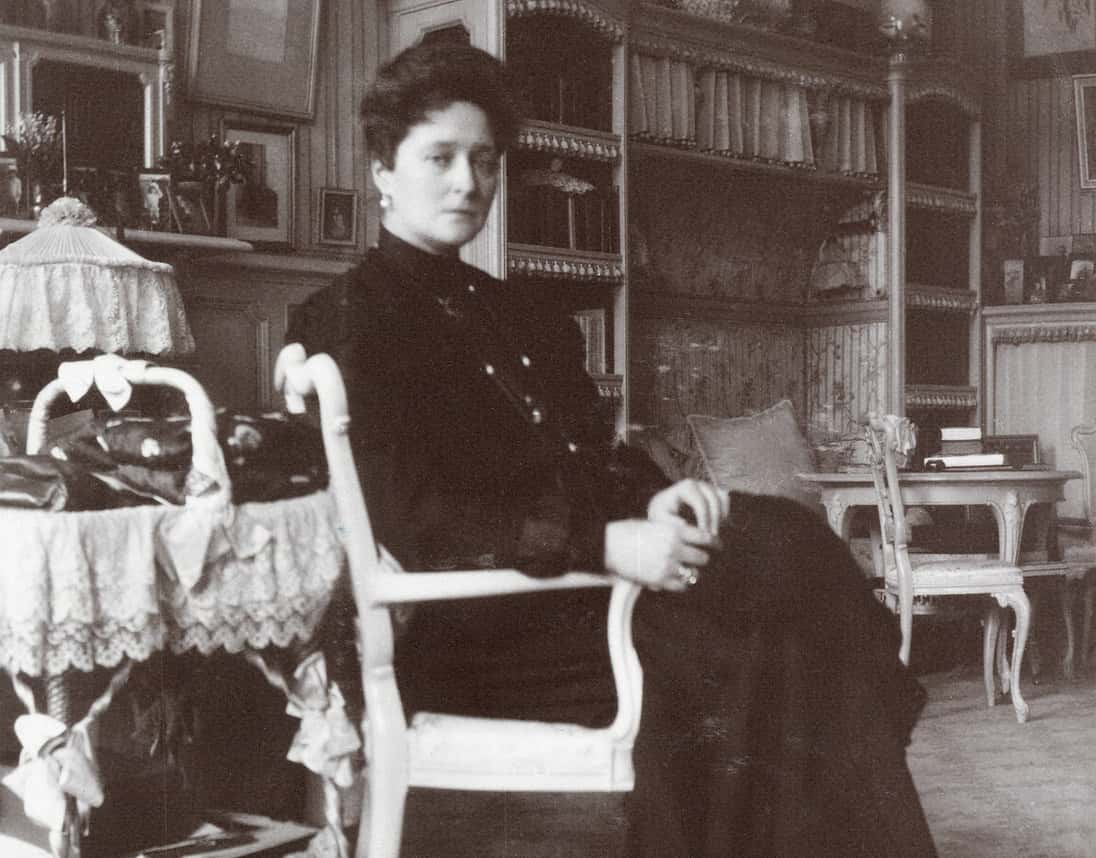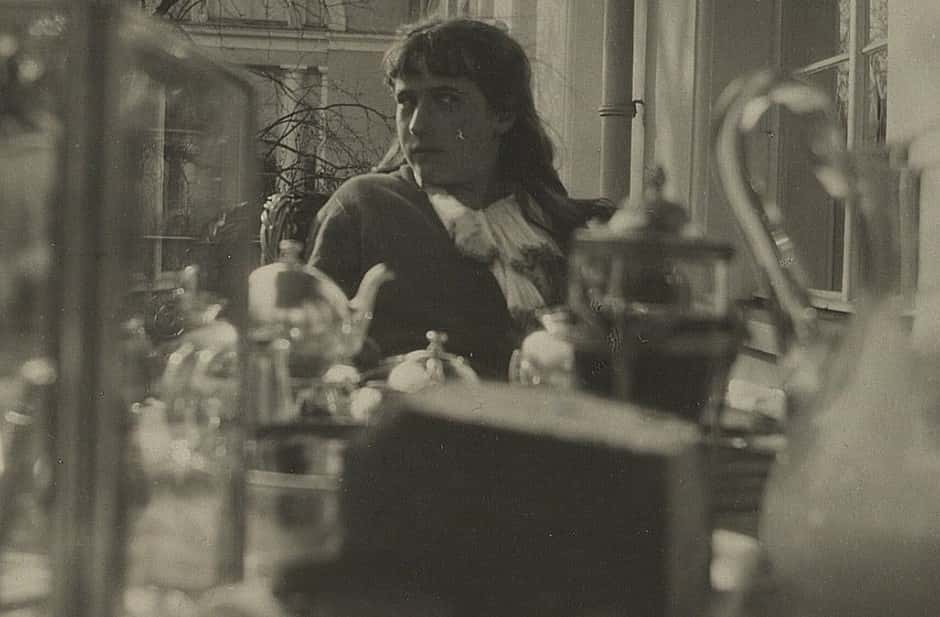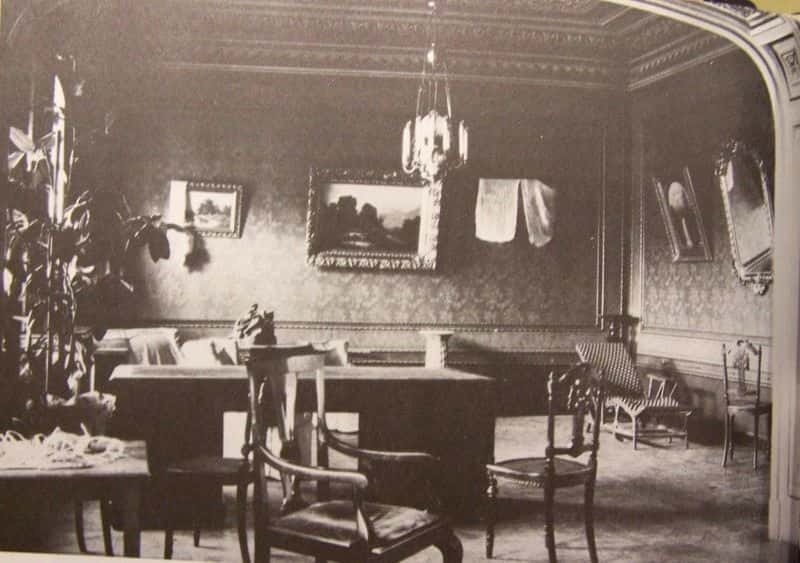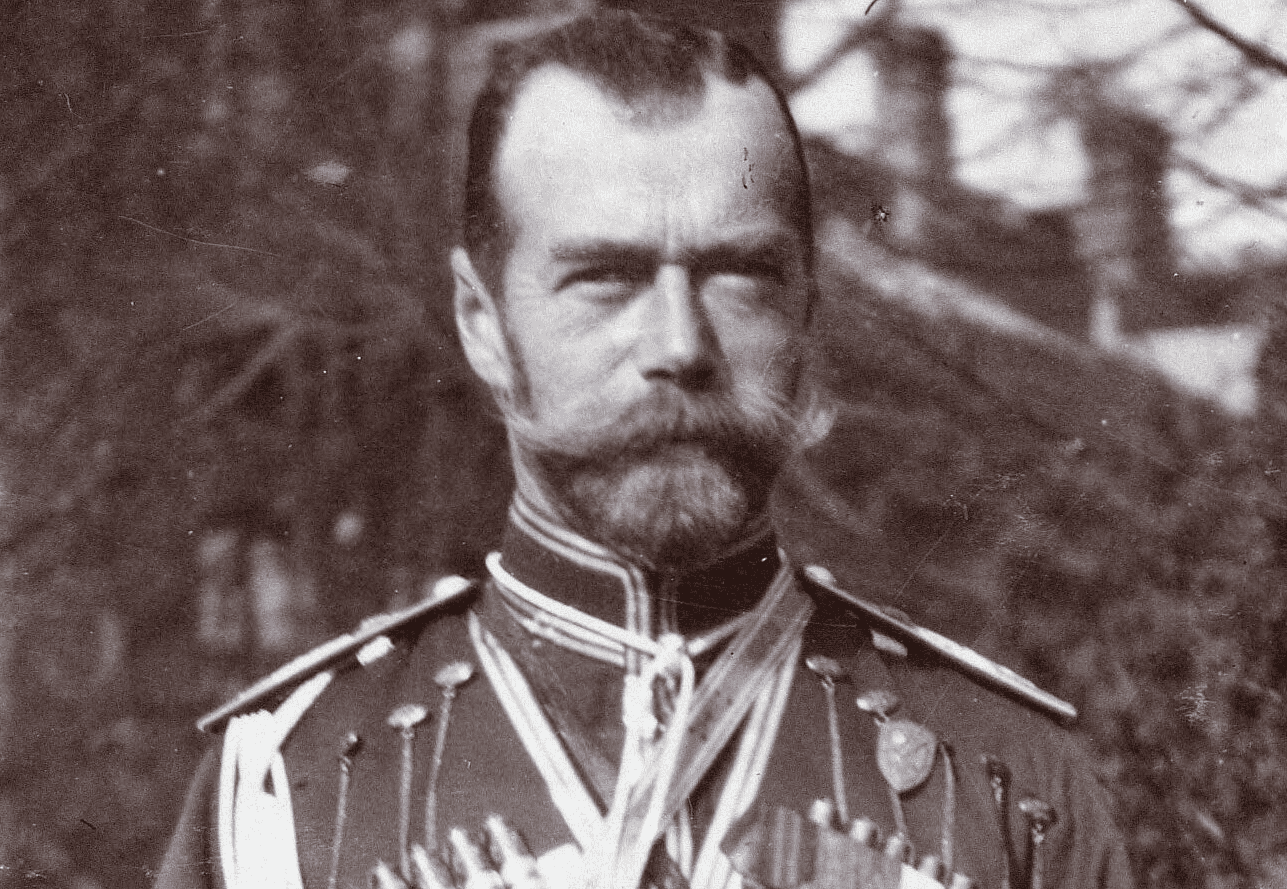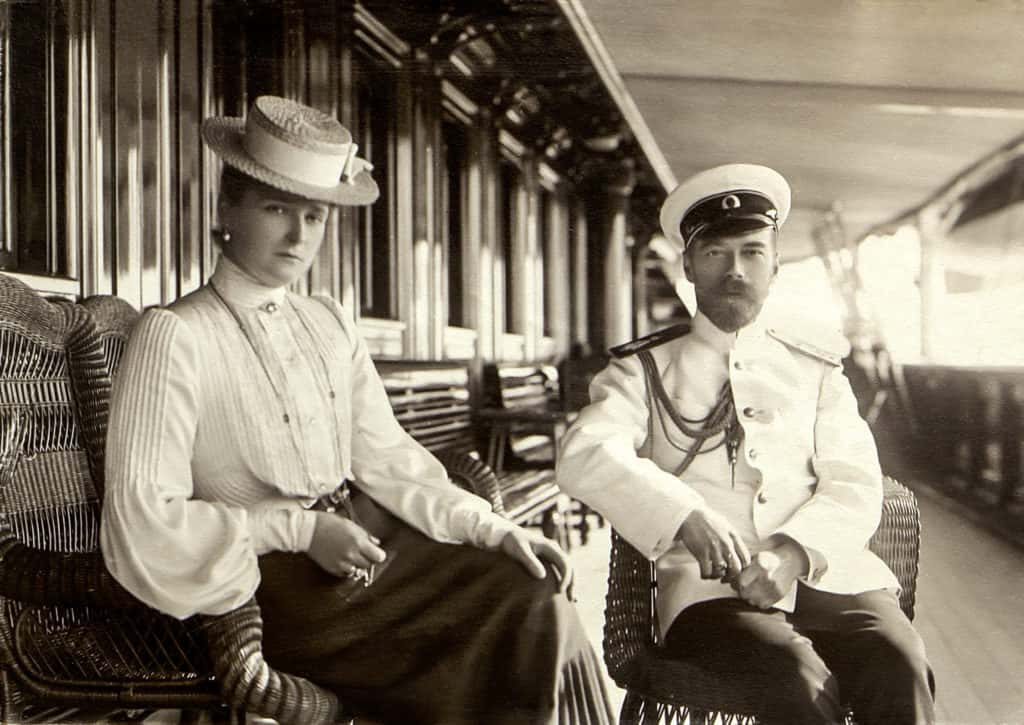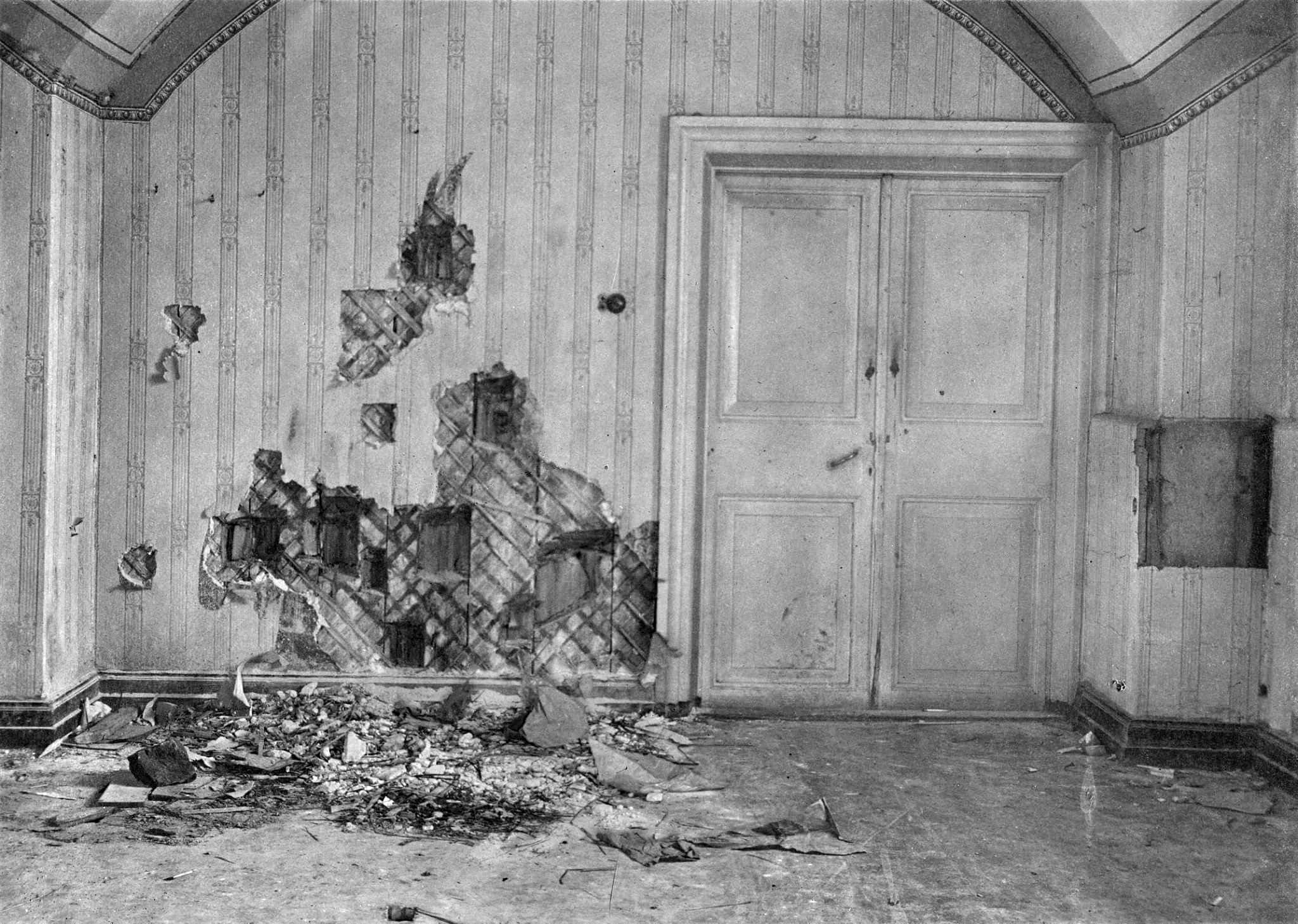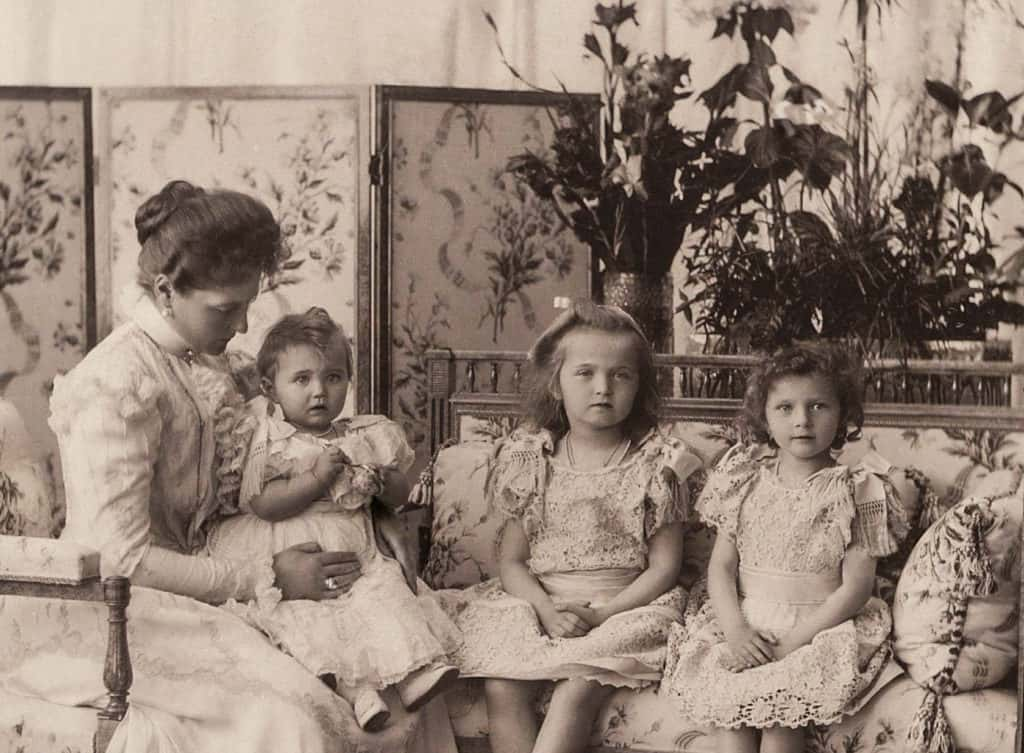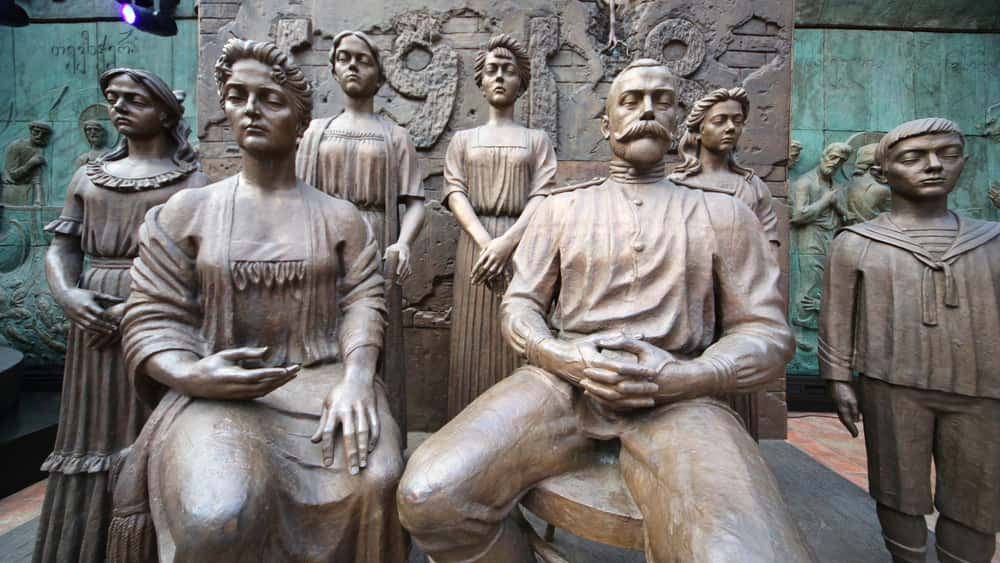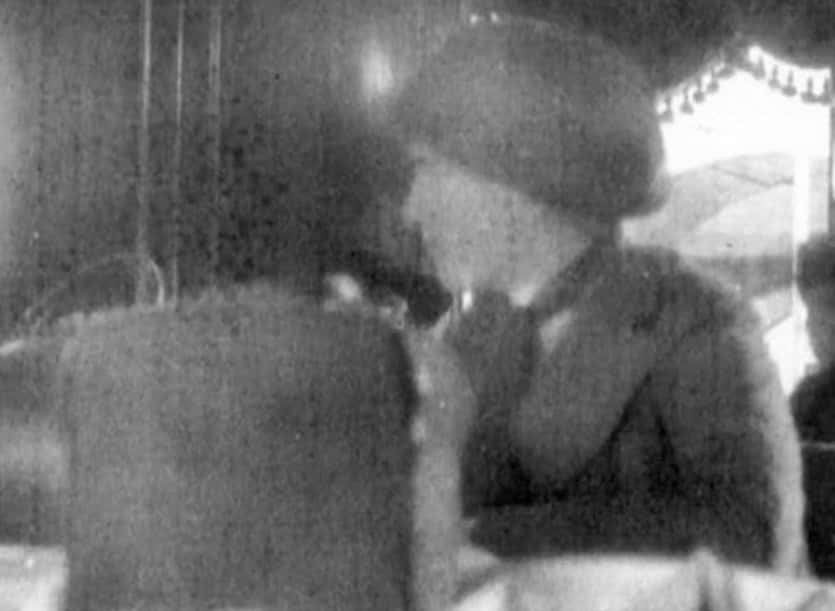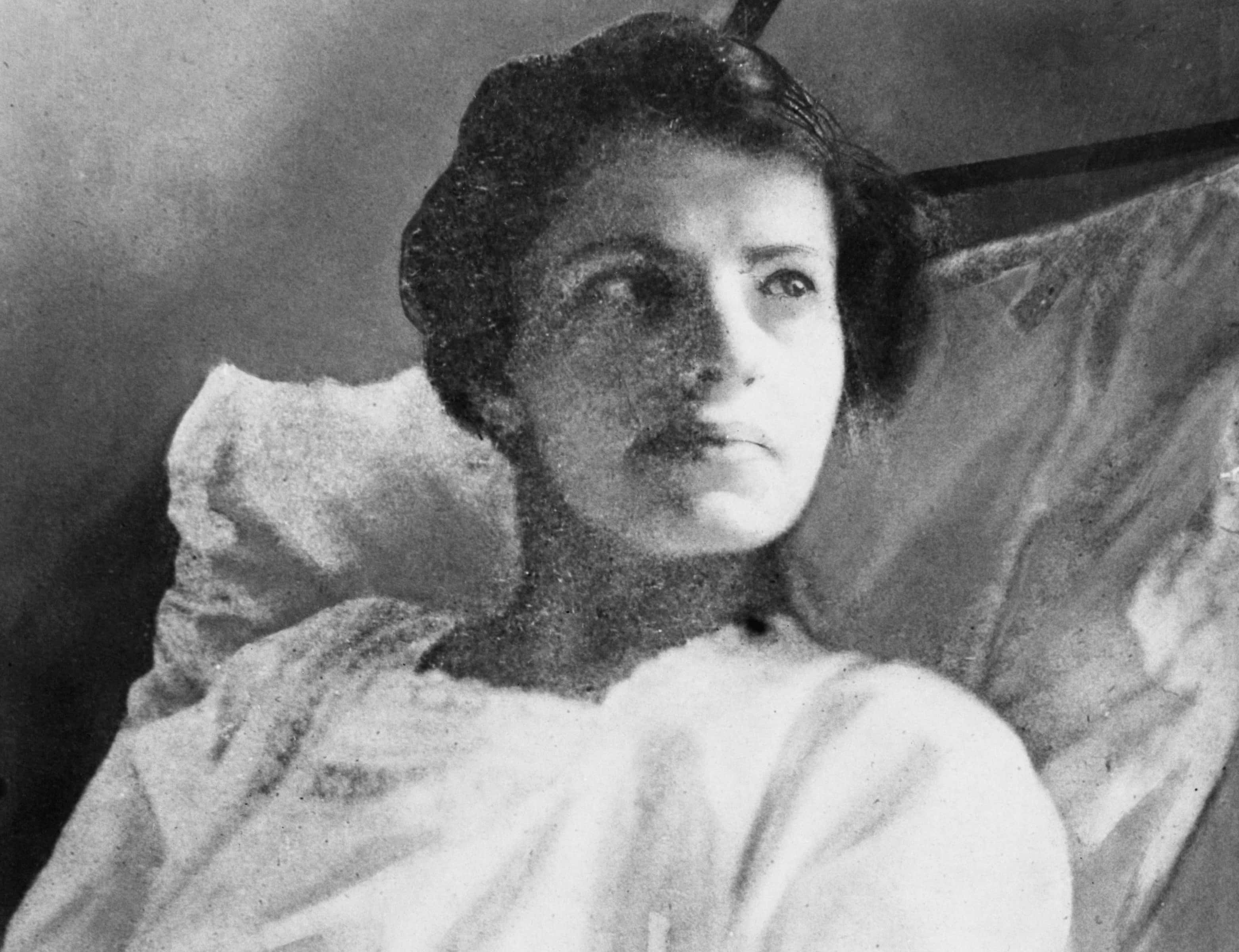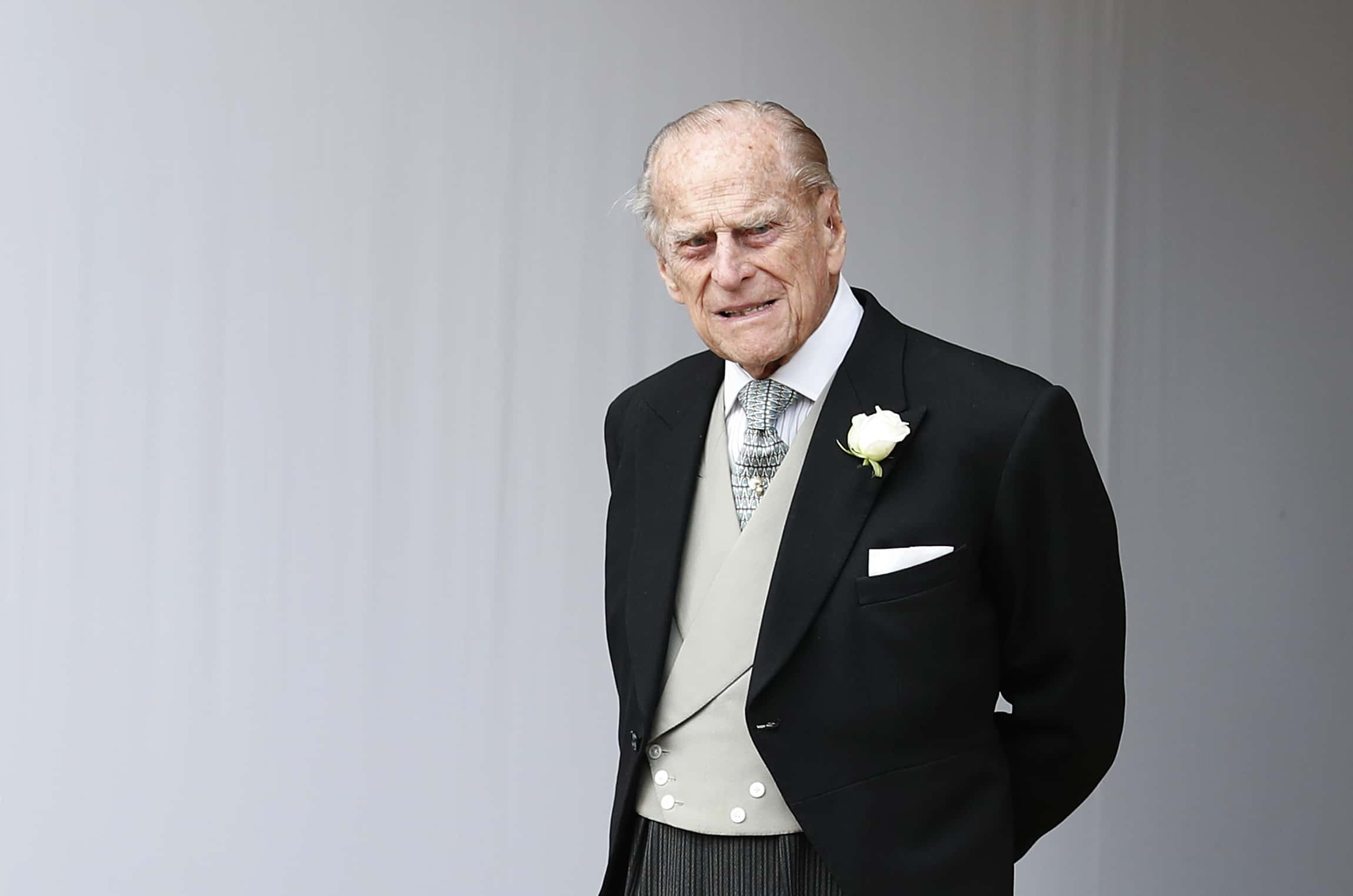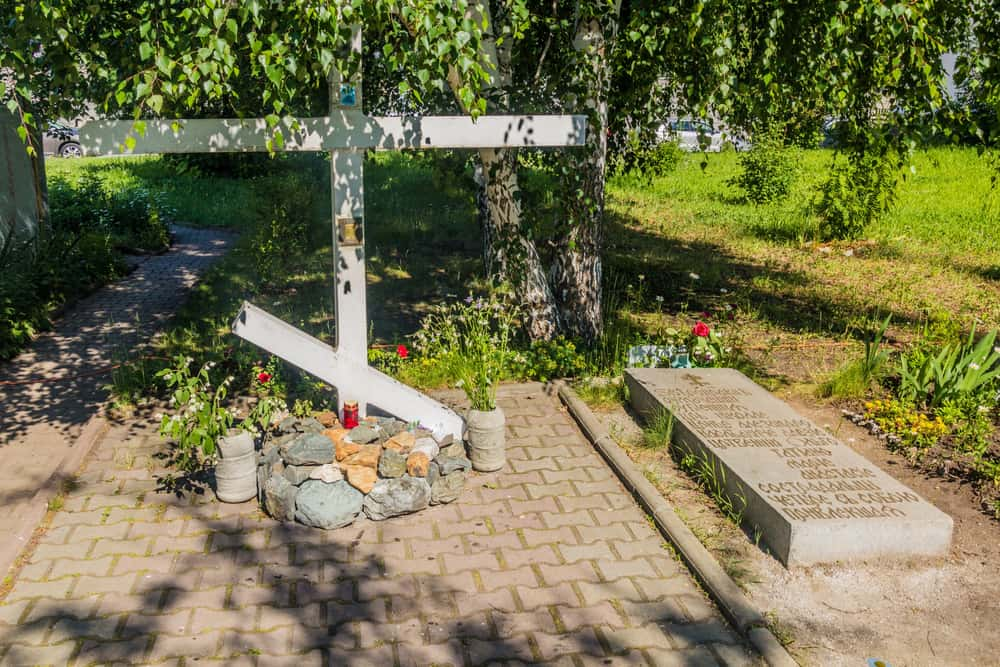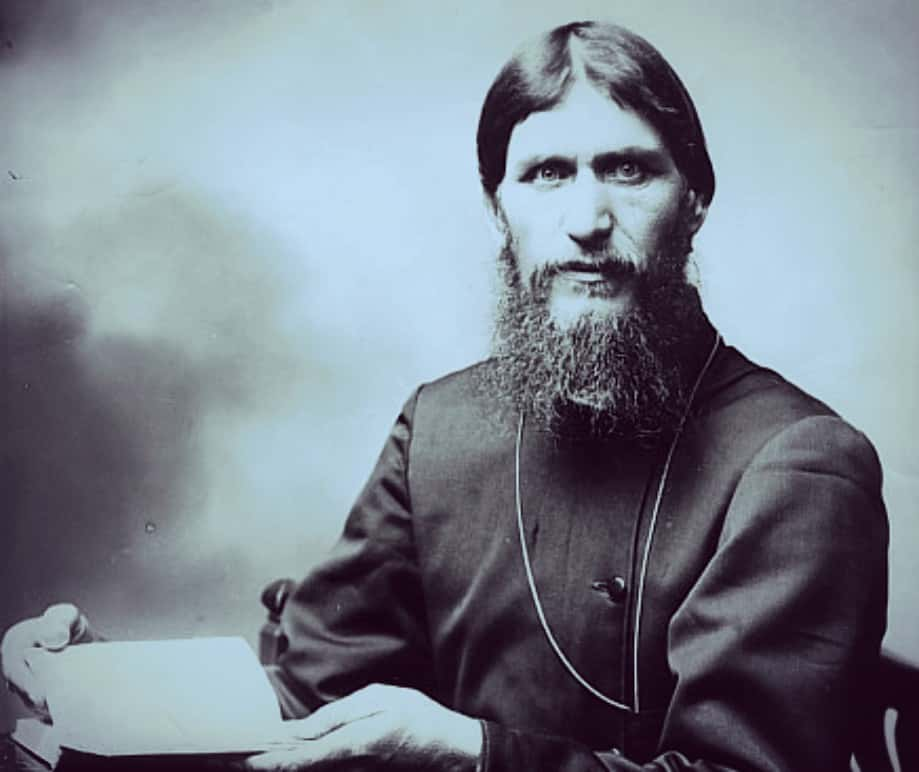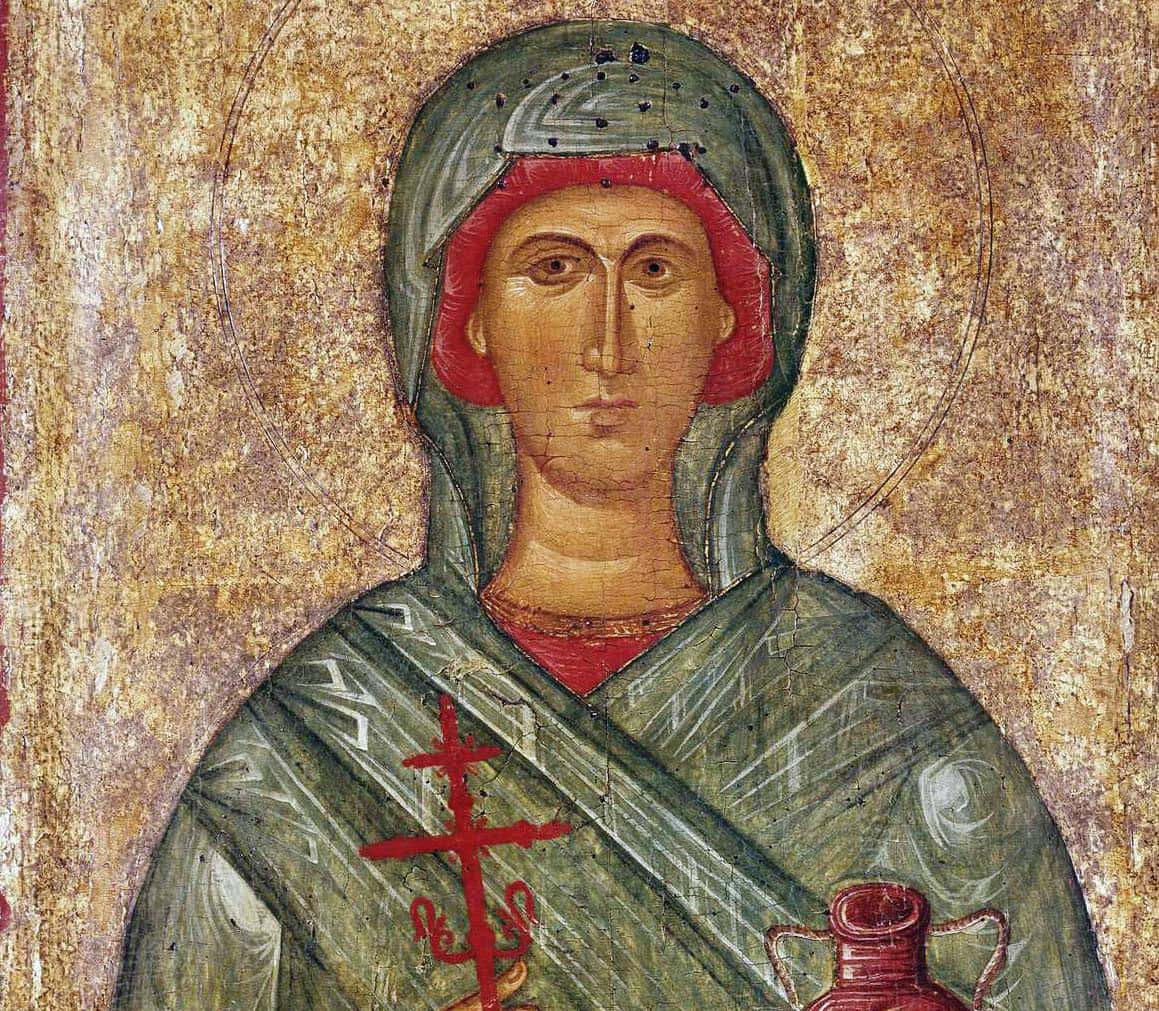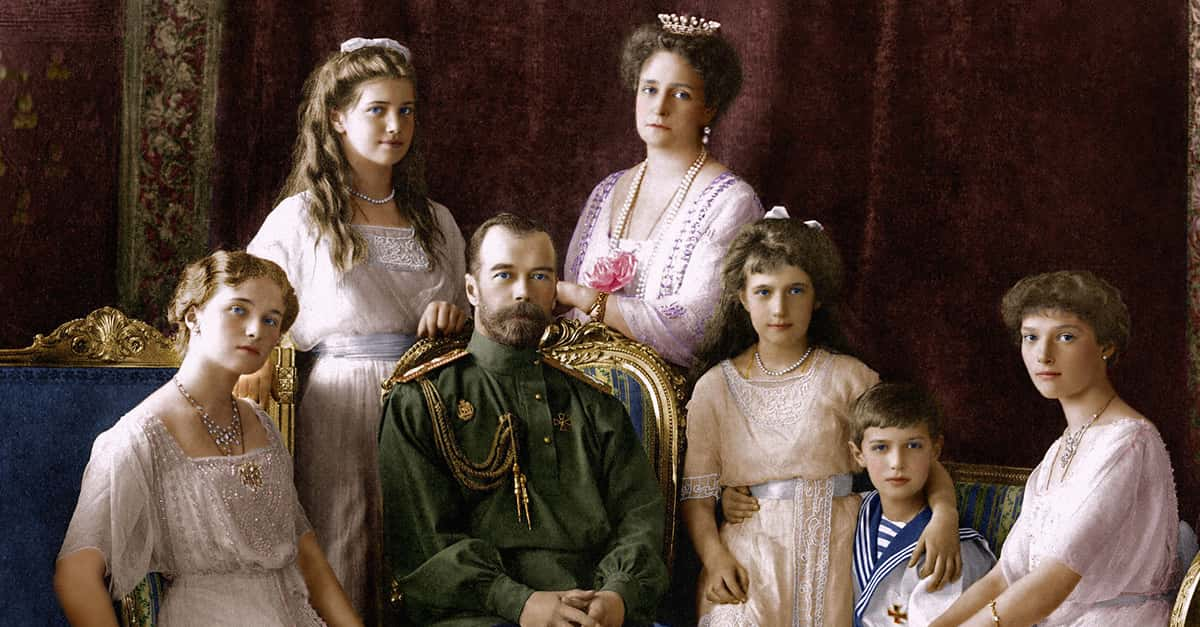Although the Grand Duchess Anastasia suffered a horrifying fate, the controversies surrounding her demise catapulted her to lasting fame. The mystery of the lost Princess Anastasia prevailed for decades—but when the disturbing truth finally came out, rumors of her dramatic escape morphed into the most chilling horror story imaginable.
1. She Was A Crushing Disappointment
Born into the doomed Romanov family on June 18, 1901, The Grand Duchess Anastasia's birth was an utter disappointment to her parents, Tsar Nicholas II and Tsarina Alexandra. Pressured to produce a male heir, they had unluckily produced three girls already, and little Anastasia was the fourth. In fact, her father was so distraught that he went on a long walk to settle his nerves.
It was a sad beginning for a young princess destined to live such a short life—but Anastasia's troubles were only just beginning.
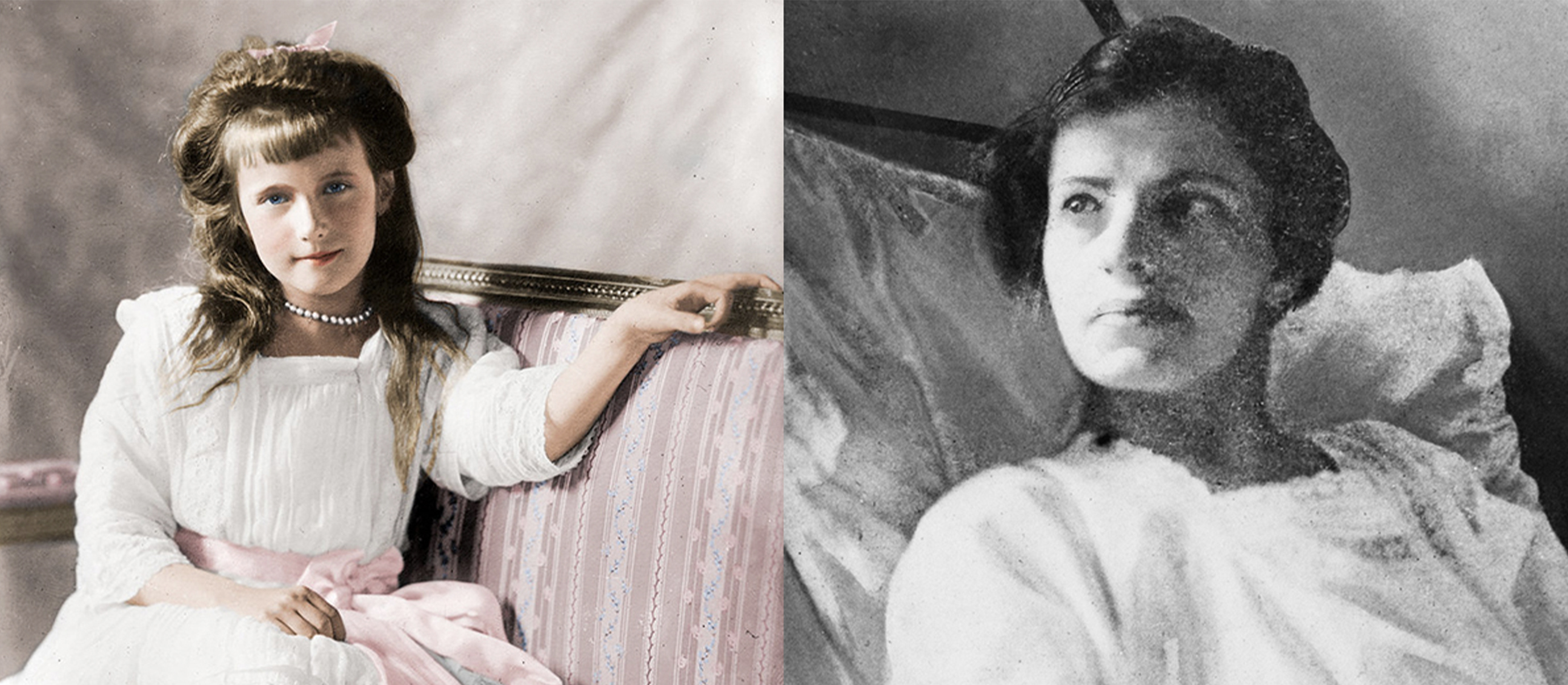
2. She Wasn't A Pampered Princess
Although a young princess, Anastasia wasn't exactly pampered or spoiled—and she certainly didn't enjoy an idle day-to-day existence. Instead, she and her siblings slept on uncomfortable beds without any pillows, beginning every morning with an ice-cold bath followed by some cleaning and needlework. However, this strict regimen didn't stop the young princess from becoming the infamous mischief-maker in her family.
3. She Was A Mischief Maker
With her startling blue eyes and blonde hair, Anastasia was known not only for infectious charm but for her prevailing sense of humor. However, out of all her siblings, her penchant for stinging witticisms and pranks got her into the most trouble. Many saw witnessed her tripping the servants, climbing trees, and meddling with her tutors. But sometimes her naughtiness had a devilish dark side.
4. She Had A Dark Side
On one disturbing occasion, the young Anastasia hid a rock inside of a snowball and whipped it at her sister Tatiana, who went down like a rock herself. Sometimes, she'd even go so far as to lash out at her playmates during game time. No bad deed was off the table: cheating, scratching, and kicking. Horrified by such behavior, her cousin Princess Georgievna said that "Anastasia was nasty to the point of being evil".
But, of course, Anastasia's rebellious nature didn't end there.
5. She Was A Free Spirit
Although raised behind palace walls, Anastasia had a free spirit and thought little of the trappings of beauty and royal appearances. When she was 10—old enough to know better—the princess settled into her seat at the St. Petersburg Opera house and did the unthinkable. With her flawless, white gloves still on, she began indulging in chocolates.
But for all her bratty inclinations, Anastasia also suffered behind closed doors.
6. She Wasn't The Strongest Specimen
You see, her health wasn't always as robust as it seemed. The Grand Duchess' feet were in constant pain due to the pulsing bunions on her big toes. Moreover, she had a very weak back and, for treatment, endured frequent massages, which she absolutely despised. In fact, she hated them so much—she'd hole up in a cupboard or hide beneath her bed to escape them.
Although not exactly the picture of health, Anastasia certainly wasn't the only one in her family to struggle with chronic pain.
7. Her Family Carried A Cursed Disease
Anastasia might have been a carrier of the "Royal Disease" hemophilia—a condition where a low blood-clotting factor could result in excessive bleeding. However, although her aunt, Olga Alexandrovna, believed that all of the Romanov girls were heavy bleeders, only one of Anastasia's siblings was a certain victim. And this predicament was, without a doubt, one of the family's worst nightmares.
8. She Worried About Her Brother
Three years after her disappointing arrival, the Romanov's dreams finally came true. Anastasia and her sisters welcomed a new member to the family, a bouncing baby boy named Alexei. With his appearance came a huge sigh of relief—but sadly, the royal family's excitement quickly turned to horror. After cutting Alexei's umbilical cord, the poor infant just wouldn't stop bleeding.
Worried about their sickly male heir, the Romanovs eventually turned to a healer for help. This was a huge mistake.
9. She Made A Controversial Friend
When Anastasia's mother sought the healing powers of Grigori Rasputin, she had no idea that she'd unwittingly welcomed a brand new horror show into their lives. As a Russian peasant and "holy man," Rasputin soon became entrenched in Anastasia and her siblings' lives. The young princess even came to know the bearded man as "Our Friend". However, he was anything but.
10. She Was Vulnerable
Despite his unsettling appearance, Anastasia and her siblings were "completely at ease" with Rasputin. Soon, he'd forged a strong friendship with the children, but not everyone approved of him. In 1930, Rasputin scandalized the governess Sofia Ivanovna Tyutcheva by visiting the nursery while the girls were vulnerable, dressed in their flimsy nightgowns.
Utterly distressed, Sofia wanted him banned from the nursery. Soon, a new kind of tension wove its way into the fabric of Anastasia's young life.
11. Her Governess Went Rogue
Anastasia and her siblings worried that Sofia's anger toward their "friend" would get her into trouble, and they were right. When the Romanovs fired the governess, she took her disturbing story on the road, informing other members of the royal family. This sparked a downright scandal. Although Rasputin's relations with the girls were, by all accounts, innocent, Sofia's grievances caused an uproar.
12. She Had A Chilling Scandal
Sofia ran straight to Anastasia's aunt Xenia Alexandrovna and whispered unsettling gossip into her ear. Xenia was shocked to learn that Rasputin saw the girls as they prepared for bed, sometimes even hugging them. But these rumors were only the beginning. In the spring of 1910, another governess came forward with a chilling allegation against Rasputin.
13. Rumors Engulfed Her
Anastasia's governess, Maria Ivanovna Vishnyakova, claimed that the family's good "friend" Rasputin had assaulted her. But there seemed to be a chasm separating the Romanovs' opinions of the holy man and these terrified governesses' experiences. Anastasia's mother refused to believe Maria's accusations, insisting that "everything Rasputin does is holy".
However, the Romanovs' love of Rasputin didn't help them one bit. Eventually, this torrid gossip leaked into society—and the consequences shook the foundations of Anastasia's peaceful life.
14. She Became The Subject Of Lewd Gossip
Little Anastasia found herself caught in the middle of some of the crudest criticisms imaginable. Within society, obscene cartoons began circulating. The pictures showed Rasputin having inappropriate contact with the four grand duchesses and the Empress herself. This scandal was the last straw—and forced Anastasia's father to make a drastic decision.
15. She Lost Her Friend In An Unsettling Way
Anastasia had gotten used to having her close confidante Rasputin around, so, when Nicholas ordered him into exile, her world shifted. However, despite the many accusations against the holy man, her family didn't exactly cut all ties. In fact, they continued to support him until his murder on December 17, 1916. Anastasia's reaction to his loss was unforgettable.
16. She Mourned For Him
As controversial a figure as Rasputin had been, Anastasia and her siblings felt his loss deeply. When she heard the news of his passing, the grand duchess and her mourning sisters "huddled up closely together" and seemed "cold and visibly terribly upset". Oh, but their devotion to him went so much further than that. They all signed their names on an icon that Rasputin took to his grave.
Tragically, Anastasia's heartbreak was only a precursor for even greater horrors to come.
17. She Tried To Make A Difference
WWI turned Anasastia's life upside down as it did so many others. Although they were too young to become Red Cross nurses, she and her sister Maria managed to contribute in their own special way. Anastasia did what she did best: she brought her fun-loving attitude into the hospitals and played games with the wounded officers. And she certainly made a lasting impression.
18. She Was A Ray Of Sunshine
One of the patients in the hospital vividly remembered the Grand Duchess, most notably her bubbly nature. Felix Dassel remembered Anastasia who had a "laugh like a squirrel" and walked so quickly she basically "tripped along". From checkers to billiards, the young princess' vivaciousness cast a sliver of sunshine across the shadow of loss.
But soon, even her high spirits were dashed to pieces.
19. She Paid The Ultimate Price
Bound to pay for the sins of her father, it wasn't long before the Russian Revolution arrived on Anastasia's doorstep. Tsar Nicholas' poor leadership had finally come around to haunt him—and his family would suffer greatly for it. You see, after Russia had joined WWI, its people suffered extensive casualties and brutal food shortages.
With suffering, grief, and poverty ravaging the Russians, it wasn't long before its victims turned an accusatory eye to their leader, Tsar Nicholas. And who got caught in the crossfire? Anastasia herself.
20. Her Home Became Her Prison
In February 1917, the Russian people revolted and, eventually, Anastasia's father had no choice but to abdicate his throne. Now, the entire Romanov family was in more danger than ever before—their futures terribly uncertain. Placed under house arrest, guards tracked their every move. In such a short amount of time, Anastasia's home at the Alexander Palace had become her prison. But the greatest danger was yet to come.
21. She Fell Frightfully Ill
Not only had the revolution turned Anastasia's world topsy-turvy—but in the January of the same year, she and her siblings came down with a frightful case of measles. They'd unknowingly frolicked in the snow with a young cadet who'd obliviously spread the illness to them. Sadly, the medicine they used to treat measles caused their hair to fall out.
Distressed by the loss of their gorgeous locks, Anastasia and her sisters made a startling decision.
22. She Lost Her Hair
Faced with hair loss, the Grand Duchesses shaved their heads bald in the spring, believing it would help their hair return. They sported this new look for quite a while until their hair began growing in. Of course, considering the chilling nature of their captivity, baldness was the least of Anastasia's worries. Beauty took a backseat to survival.
23. She Fled To Safety
By August of that year, Anastasia faced another terrifying change. With the revolution heating up and the encroachment of the Bolsheviks, the Romanovs had no choice but to evacuate. For her own safety, Anastasia found a new home in Tobolsk, Siberia with the rest of her family—but it wasn't as if they lived in utter squalor, at least not yet.
24. She Hid From Danger
For a few months, Anastasia lived a rather peaceful (although surveilled) existence. Residing in the former governor's mansion, her entire family was quite comfortable. But all that changed in October 1917 when the Bolsheviks finally gained power. Suddenly, the stark reality of their situation became much darker. The conditions tightened up and fear crept in.
25. They Stripped Away Her Dignity
Hatred for the Romanovs continued to rage on, and Anastasia certainly began to feel it during her time in exile. Threatening gossip held her future in its grasp and there were worrisome rumors that her father would face trial. In addition, sentries went so far as to draw crass illustrations on the fence surrounding the property, hoping to scandalize and offend the Grand Duchesses. And then the real changes began.
26. She Lost Every Luxury
On March 1, 1918, Anastasia lost some of her royal privileges. She and the rest of her family switched to soldiers' rations, and they had to forfeit such delicacies as coffee and butter. Not only that, but their 10 servants promptly lost their jobs. Then, in April, another huge change whipped through her life—and this time, it ripped her family apart.
27. She Was A Hostage
While her parents and sister Maria moved to Yekaterinburg, Anastasia stayed behind with her sickly brother and other sisters. Divided for a short time, the distressed princess reunited with the other half of her family in May 1918. Held captive at the Ipatiev House, Anastasia's life hung in the balance. If the town had any counter-revolutionary sentiments, the entire Romanov family faced execution.
It was the beginning of the last, and darkest, chapter of her life.
28. She Had No Rights
To Anastasia's dismay, she lost all of her privileges during her stay at the Ipatiev House—and the rules were brutally severe. For one, she couldn't access her belongings and wasn't allowed to speak any languages other than Russian. Moreover, her entire family had their titles stripped and the servants addressed them by their common names only. But this was just the tip of the iceberg.
29. She Couldn't See Beyond The Walls
Officers confiscated much of the family's belongings, including money and even gold bracelets from the Grand Duchesses' wrists. But the most distressing part of all? A four-meter-high palisade surrounded the property, keeping the entire family hidden from view. Anastasia felt utterly trapped—and that's when the imposed isolation took an incredibly disturbing turn.
30. Her Curiosity Got The Best Of Her
All of the rooms her family occupied were sealed. At first, newspapers covered all the windows, but later, they were all whitewashed. As such, there was only a single source of ventilation—a fortochka in Anastasia's bedroom. This led to a harrowing incident. Although they were all strictly forbidden from looking out of the fortochka, the rebellious Anastasia made a near-fatal mistake.
31. She Almost Perished
Anastasia decided to peek out of the fortochka—and it almost cost her her life. The second her little head appeared, a sentry took aim and fired at her. Luckily, she dodged the bullet. Clearly, the captivity had started taking a mighty toll on the Romanovs. Desperate for a slice of freedom, Anastasia's parents asked for some of the windows to be unsealed. But even this had its dangers.
32. She Longed For Freedom
On high alert, the guards kept an even closer eye on the family once they unsealed two windows in the tsar and tsarina's quarters. However, they also forbade the family from looking out the window. Just like Anastasia, if they made any attempt to signal or poke their heads out, they'd be shot at. Unfortunately, Anastasia's mother had a habit of standing close to the open window, and so, an iron grille had to be implemented.
33. She Wasn't A Princess Anymore
Anastasia's fall from princess to prisoner made her old life seem like a distant and blissful memory. Now, she couldn't even go to the bathroom without ringing a bell. The guard rationed her water and told her family "they were no longer permitted to live like tsars". She had zero contact with the outside world—no visitors or newspapers, and certainly, no letter writing.
It seemed like life couldn't get any worse—but she was so, so wrong.
34. She Woke In Fear
On July 17, 1918, the real horror show began. At around midnight, the family doctor, Eugene Botkin, shook Anastasia and her family awake and told them to dress as quickly as possible. The Grand Duchess couldn't believe her ears. The city had erupted into chaos and they had to move to the basement for their safety. Unbeknownst to the frightened captives, this was the beginning of the end.
35. She Hid In The Basement
Anastasia followed her family into the cramped basement. The confusion was palpable as her father demanded that the guards provide chairs for the tsarina and the sickly Alexei. Although the guard granted him his request, Nicholas failed to hear the chilling words he spoke behind the closed door: "The heir wants to die in a chair. Very well then, let him have one".
36. She Had A Brief Moment Of Hope
Anastasia stood with her sisters as a guard informed them that a truck had arrived to carry them to an even safer location. But this was a blatant lie. Only minutes later, a group of guards filed into the basement. One of them brandished a piece of paper—and its contents were the last words the Romanovs ever heard: "Nikolai Alexandrovich, in view of the fact that your relatives are continuing their attack on Soviet Russia, the Ural Executive Committee has decided to execute you".
And that's when the blood bath ensued.
 Nicholas and Alexandra (1971), Horizon Pictures (II)
Nicholas and Alexandra (1971), Horizon Pictures (II)
37. She Couldn't Escape
Anastasia watched as her father scanned the faces of his family in panic and cried, "What? What?" But it was already too late. Her mother and sister tried to bless themselves but the deafening sound of the firing cut them short. The tiny basement flooded with smoke and dust, eliminating all visibility. Behind the veil, however, the nightmare had only just begun.
38. She Survived
When the smoke cleared, the bodies of the Romanovs painted a disturbing tableau. Nicholas had passed almost immediately, with three shots to his chest, as did Alexandra, who took a fatal shot to the head. However, that wasn't the most horrifying part. You see, Anastasia and her siblings were still alive. As they waited for the dust to settle, the executioners could hear them moaning in pain.
Their fates were, perhaps, the most disturbing of all.
39. Her Nightmare Still Wasn't Over
Because the Romanov children still breathed, the executioners began to use their bayonets. However, even this brutality proved ineffective. Shots rained down on the children yet again, with Anastasia and Maria curled up against the wall, trying in vain to shield their heads. But why were the children so difficult to slay? Well, there was one unsettling reason.
40. She Made A Grave Mistake
Earlier, the Romanovs came up with a brilliant plan to smuggle the family jewels—but sadly, it only contributed to their incredibly drawn-out demises. You see, they'd sewn diamonds into their clothing, but it was Anastasia, Tatiana, and Maria who carried the most—a few pounds worth. Although it protected them from the flying bullets, it eliminated their chances of a quick end.
41. She Finally Succumbed To Her Wounds
Because of the hidden jewels, an execution that should have lasted mere seconds, instead, lasted about 20 grueling minutes. Finally, after every last Romanov lay unmoving, the guards got to work. They stripped Anastasia and her family of their garments, loaded them into a truck, and drove the corpses to an abandoned mineshaft. The atrocities inflicted upon them only continued.
42. She Went Missing
After hurling the family down the mineshaft, guards covered the bodies in sulphuric acid, disfiguring them beyond recognition. However, not all of the Romanovs ended up together. You see, Alexei and one of his sisters did not take a final tumble down the mineshaft. The guards separated them intentionally. If anyone searching for the royal family came upon the gravesite, the missing children would, hopefully, throw them off.
And this is how the mystery of Anastasia truly began.
43. She Became A Mystery
Throughout the 20th century, stories about the Grand Duchess Anastasia ran rampant. Many believed that she'd escaped the execution and survived. As many as ten women came forward, claiming to be the lost princess. However, between 1920 and 1922, one woman, in particular, fed the frenzy surrounding Anastasia's mystery.
44. She May Have Survived
In 1922, a mysterious woman turned up in a hospital claiming she was the lost Princess Anastasia. The youngest Romanov girl was long thought dead—but when the family visited, they were chilled to the bone: she looked just like the little princess. The woman went by the name of Anna Anderson, and even people who had known Anastasia as a girl were convinced she had somehow survived her family’s brutal execution.
They were overjoyed, little knowing that the worst tragedy was yet to come.
45. There Were Imposters Everywhere
Anna Anderson weaved a very convincing story. She claimed that she had faked her demise, lying still next to her deceased family members. That's when a merciful guard realized that the little princess still lived. According to Anderson, the guard then helped make her dramatic escape. Her fight to be recognized as Anastasia became a long-fought battle that lasted her entire life.
However, it was all a brilliantly constructed lie.
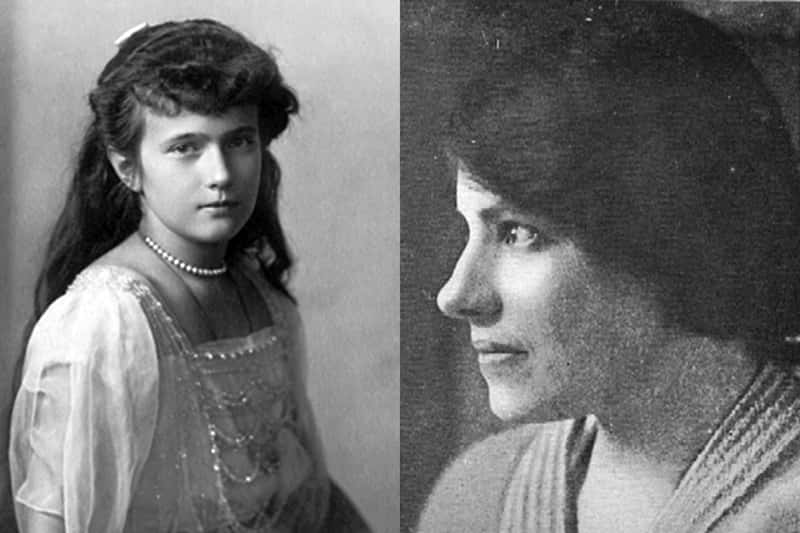 Flickr, Royal Opera House Covent Garden
Flickr, Royal Opera House Covent Garden
46. She Was A Liar
In 1984, Anna Anderson passed, but it wasn't until 1994 that a DNA test outed her for the imposter she truly was. Anderson's tissue sample did not match the blood of Prince Philip, Duke of Edinburgh—a relative of the imperial family. For Anderson's many supporters, this was a crushing blow; they admitted that the DNA tests had "won the day".
While many Romanov imposter reared their heads throughout the 20th century, the cold hard truth was the most difficult story to swallow.
47. Her Mystery Deepened
Although the Romanovs' burial site had been discovered in 1981, its location was kept a secret due to Communist rule in Russia. It wasn't until a decade later that it was finally excavated. Was it finally time for Anastasia's truth to come to light? Well, not exactly. The remains found in the grave actually added to the mystery. Only nine bodies, instead of the presumed eleven, were unearthed.
According to DNA and skeletal analysis, scientists claimed that Anastasia and Alexei were the two missing Romanovs. They were sorely mistaken.
48. She Wasn't The Missing Princess
On August 23, 2007, another discovery regarding Anastasia was made. A Russian archaeologist had discovered two burned skeletons at a bonfire site about 50 feet from the original mass grave. The bones belonged to a boy, no doubt Alexei, as well as a girl between the ages of 18 and 23. While Anastasia had been 17 at the time of her passing, Maria had been 19.
In the end, it was Maria and not Anastasia who'd been the missing princess.
49. She Carried Him With Her
In lieu of all the horror surrounding Anastasia's demise, there's one more disturbing detail to note. Although the controversy surrounding the Romanovs and Rasputin only contributed to the Russian Revolution, the family never surrendered their love for the despised holy man. After the Bolsheviks executed the family, they found Anastasia and the other Grand Duchesses with some very unique amulets.
These amulets held not only a prayer but a picture of Rasputin himself.
50. She's A Martyr
The name "Anastasia" derives from the Greek word meaning resurrection (fitting considering all of the rumors about her survival), but she was actually named for the 4th-century martyr, Saint Anastasia. However, this too is also fitting. In 1981, she and her entire family were canonized as holy martyrs themselves.

